

What Does a Tour Package Include? Essential Components Explained
When planning a trip, it can be challenging to organize all the necessary details, including accommodation, transportation, meals, and activities. This is where a tour package comes in handy, as it includes all these elements in one convenient package. This blog post will explain what a tour package entails, the available types, and how to choose the right one.
Table of Contents
What does a tour package include?
- Accommodation: A tour package typically includes accommodation in a hotel, resort, or other lodging facilities. The type of accommodation provided will depend on the tour package you select.
- Transportation: Transportation is another essential component of a tour package. It can include flights, trains, buses, and even private cars or vans. The mode of transportation provided will depend on the tour package you select.
- Meals: Most tour packages include breakfast only to all-inclusive dining. The number and type of meals provided will depend on the tour package you select.
- Activities: A tour package may include various activities such as sightseeing, cultural experiences, adventure sports, or shopping. The type and number of activities included will depend on your selected tour package.
- Itinerary: A tour package will provide you with a detailed itinerary of your trip, including the date, time, and location of each activity, as well as any free time you may have.
Types of tour packages
- Inclusive tour package: This type of tour package includes accommodation, transportation, meals, and activities, all for a fixed price.
- All-inclusive travel package: This tour package is similar to the inclusive package, but it also includes drinks, tips, and other extras.
- Budget tour package: This package is designed for those who want to travel on a tight budget. It usually includes basic accommodation and transportation but limited activities and meals.
- Customized tour package: This package allows you to choose the specific activities and accommodations you want, giving you more control over your travel experience.
- Luxury tour package: This tour package provides premium accommodation, transportation, meals, and activities for a higher price.
How to choose the right tour package?
Choosing the right tour package can be a daunting task, but here are some tips to help you make the best decision:
- Budget: Determine your budget and look for tour packages that fit within it. Remember that a higher price may mean better quality, but finding a balance between affordability and quality is essential.
- Destination: Consider the destination you want to visit and choose a tour package that offers the best experience in that location. Look for packages that include the attractions you want to see and the activities you want to do.
- Travel Style: Think about your travel style and the type of experience you want. Do you prefer a leisurely vacation or an adventure-packed trip? Make sure to choose a tour package that aligns with your travel style.
- Reviews and recommendations: Read reviews and ask for recommendations from friends or family who have traveled with a tour package before. This can give you insight into the tour package’s quality and other travelers’ experiences.
In conclusion, choosing a tour package can make travel planning more manageable and less stressful. With various tour packages available, selecting the one that aligns with your budget, destination, travel style, and preferences is crucial. When selecting a tour package, read reviews and consider recommendations from other travelers. By following these tips, you can have a stress-free and enjoyable travel experience.
Similar Posts

Is it Cheaper to Pre-Book Excursions? Tips for Cost-Effective Travel
Traveling to different destinations can be a great way to explore new cultures, meet new people, and experience unforgettable…
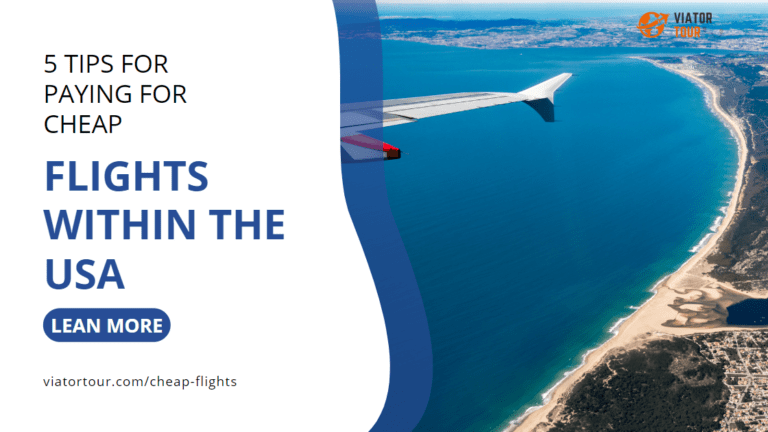
5 Tips for Paying for Cheap Flights Within the USA
Many travelers see domestic flights as something that is out of reach. After all, who wants to pay for…
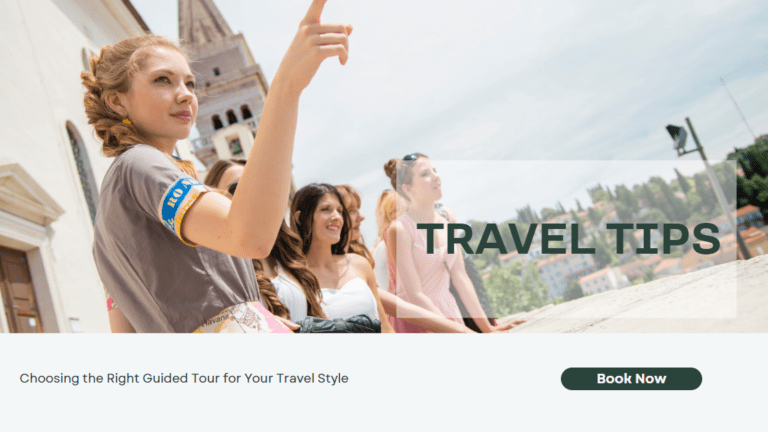
Choosing the Right Guided Tour for Your Travel Style
Step-by-Step Guide: How to Choose the Right Guided Tour for You When choosing a guided tour, you must consider…
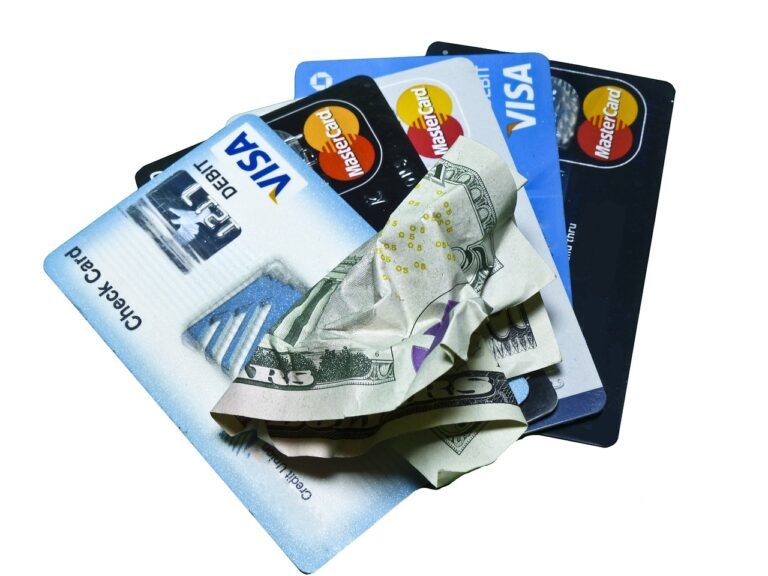
How travel credit cards work and How To Use Them Wisely
The Basics of Travel Credit Cards: How They Work and How To Use Them Wisely Photo by TechPhotoGal on…
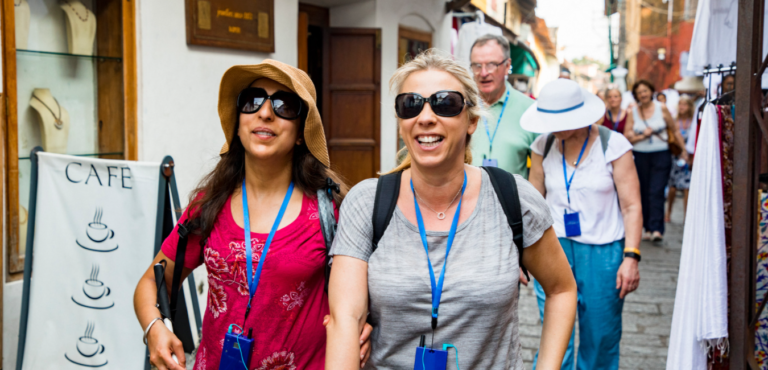
My Daily Travel Blog To Inspire And Get You Motivated!
The joy of traveling knows that you can go anywhere and everywhere — as long as you have the…

Welcome to Lake
Discover places to stay and unique experiences around the world.
- How It Works

Home - Blog - How to Make Tour Packages: Your Step-by-Step Guide
How to Make Tour Packages: Your Step-by-Step Guide

David Ciccarelli
January 19, 2024
In this article
Get started.

In today’s digital world, mastering how to make tour packages has become fundamental for tour operators seeking to grow their business. Recognizing the shift towards online bookings, offering an array of compelling tour packages enables potential guests to weigh their options effortlessly, seeking out the best experiences that align with their interests and budget. Tour packages that provide convenience and value not only stand out in the crowded market but also pave the way for stronger revenue streams and memorable experiences for your clientele.
Understanding what to include in tour packages can be daunting, but with a systematic approach, you can assemble offers that guests find irresistible. Whether it’s a tranquil getaway or an adventure-packed excursion, the right combination of elements in your tour package can make the decision-making process a breeze for travelers, resulting in satisfied customers and repeat business for you.
How to Make Tour Packages: Crafting Exceptional Experiences
Wondering how to elevate your travel offerings? Maybe you’ve pondered what makes some tour packages stand out in a crowded market. Good news, your quest ends here!
- Online Bookings – Hassle-free, secure reservation at your fingertips.
- Flexible Pricing – Deals that adapt to budgets and seasons .
- Outstanding Support – We’re here for you, every step of the way.
Remember, the ultimate tour experience is just a click away. Ready to transform your travel game?
Identifying Your Tour Package Audience
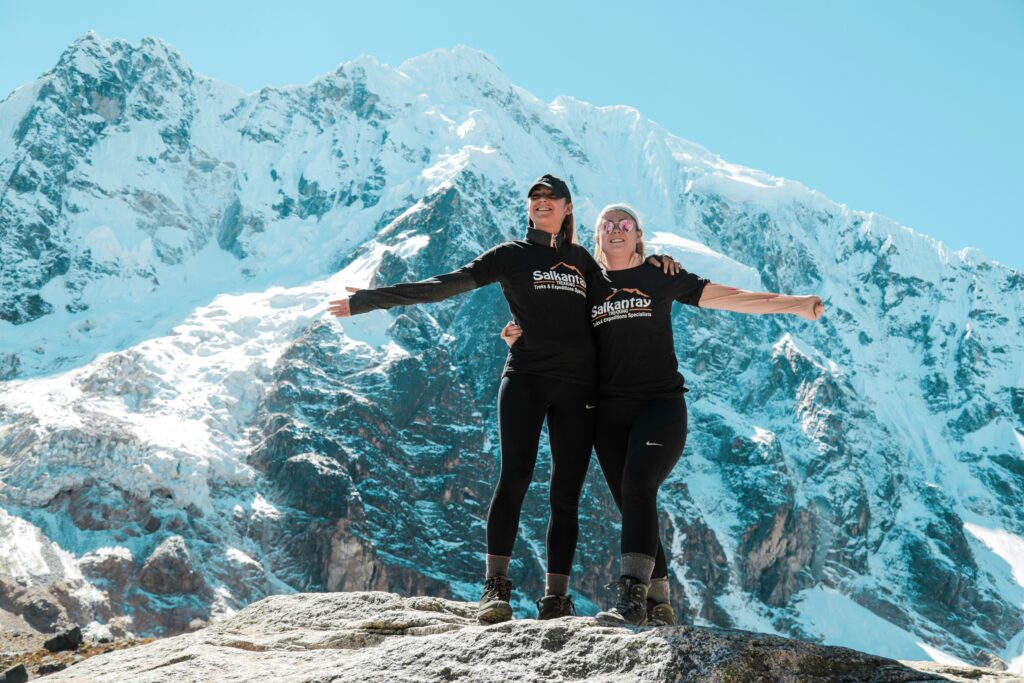
When forming tour packages, it’s crucial to consider who your offer will attract. Are you targeting:
- Adventure enthusiasts who crave excitement?
- Cultural aficionados in pursuit of enriching experiences?
- Couples on a romantic getaway?
- Individuals seeking the luxury of high-end travel?
- The older demographic preferring relaxed travel?
- Lone voyagers on a quest for solitude?
- Families with young children requiring kid-friendly activities?
Essentials of Tour Packages
When planning your getaway , what features do you expect a tour package to include? A powerful tour offering isn’t just about the destinations; it’s about forging a personal connection, ensuring that you feel the value and the excitement long before the journey begins.
Consider these key elements:
- Age Suitability : Is this adventure tailored for you or your family’s age group?
- Value : Does the pricing reflect the experiences offered, giving you the best bang for your buck?
- Accommodations : What type of lodging is included, if any? Comfort? Luxury?
- Duration : How many days of pure bliss or heart – pounding adventure can you expect?
- Activities & Partners : Are you looking for a single activity or a melange of experiences? Are respected companies involved?
- Tour Type : Are there options for the thrill-seeker, history buff, or family-friendly explorer?
The Importance of a Package Tour
Ever felt like you need a vacation from planning a vacation? Package tours swoop in as the hero, offering the sweet relief of convenience. Imagine simply showing up, with transportation, accommodations , and meals all set. Switch to vacation mode quicker, without the nitty-gritty of travel planning.
Why do travelers adore package tours? Here’s the scoop:
- Time Saver: No more endless searching for hotels or comparing flight prices. More time for you, less for logistics.
- All-Inclusive Experience: From your comfy hotel bed to that sunset cruise, it’s all wrapped up in one neat bundle.
- Increased Value: Worry less about costs adding up. The overall value of a package often outweighs individual bookings.
- Reduced Cancellations: Commit to fun! Secured plans mean you’re less likely to back out last minute.
- Community Vibes: Booking packages that partner with local businesses can inject a feel-good factor into your trip.
Remember, a calculated package deal can translate to significant savings for you while simultaneously lining the pockets of tourism businesses with healthy profits. It’s a win-win in the world of travel. Ready to pack your bags yet?
Key Elements of a Packaged Tour
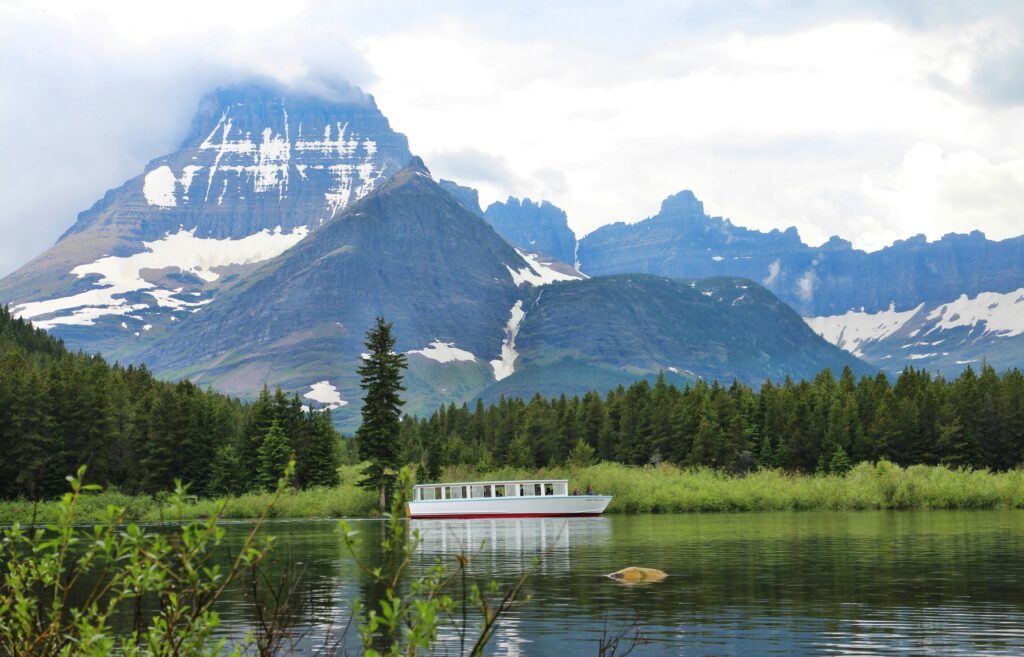
- Duration & Schedule : Your adventure, lasting from a day trip to extended stays , will have a well-defined timeline.
- Transportation & Accommodation : From flights to coaches, and hotels to unique lodgings, your journey’s comfort and convenience are considered.
- Guided or Self-Explored : Choose between having a knowledgeable guide or discovering the sights at your own pace.
- Included Activities : Adrenaline-pumping sports, tranquil cultural experiences, and exclusive events await.
- Group Size : Whether it’s cozy small groups or larger gatherings, your travel package adapts.
- Equipment & Extras : Necessary gear and potential add-ons enhance your experience without the hassle.
- Insurance Options : Ensure peace of mind with optional travel insurance for those ‘just in case’ moments.
Remember, ongoing offers and discounts can sweeten the deal of your travel package.
Crafting Your Ideal Tour Experience: A Guided Framework
Scouting the tour landscape.
Begin your tour-creating journey by examining the offerings within your industry and locality. To craft a tour that resonates with your target audience, consider:
- The unique aspects of your specific area and expertise.
- How your tour can differentiate itself within the marketplace.
Knowing what your competitors are doing is crucial; ensure your offerings incorporate distinctive elements that elevate your tour above others.
Timing is Everything
Designing a tour requires careful planning around duration and scheduling, knowing the ebb and flow of your business operations. Consider:
- The frequency of departures.
- The feasible duration of the tour for an enjoyable guest experience.
Every aspect of your tour’s timing should contribute to both your guests’ satisfaction and your business’s viability.
Tailoring the Tour Experience
Give your guests autonomy with a map and let them personalize the trip with optional add-ons. The customizations could include:
- Exclusive access to particular attractions.
- Tailored equipment rentals for a seamless adventure.
Empowering guests to tailor their experience can heighten the appeal of your tour package.
Price Point Strategies
Attracting groups through discounted rates could be a wise approach. When setting your prices, consider:
- Pricing structures that work best for your business model.
- Offering incentives for larger group bookings to maximize profitability.
Well-thought-out pricing can be the key to a successful tour package that appeals to a wide audience.
Visual Vividness
Use compelling photos and videos to showcase the allure of your tour packages. Keep in mind:
- Including images that allow potential guests to envision themselves on the tour.
- Highlighting exhilarating moments and picturesque scenery in your promotional material.
Visuals play a pivotal role in captivating your audience and can significantly boost your marketing efforts.
Collaborative Local Alliances
Partnering with other local operators can broaden your package’s appeal. Integrating complimentary activities offers your guests:
- Added convenience.
- A richer, more diverse travel experience.
These alliances not only benefit the guest but can also generate repeat business for your enterprise.
Amplifying Your Tours
Let the unique selling points of your offerings shine in your promotional efforts. Aim to:
- Emphasize the unique experiences only your tour package can provide.
- Convey the value and convenience of opting for a pre-arranged package over separate bookings.
Effective promotion involves highlighting the unique benefits that come with your tour package, contributing to an effortless and memorable vacation for your guests.
Remember, as a tour operator, you have the power to shape extraordinary travel memories. Each step you take to refine your tour package bolsters your guests’ experience, ensuring that each adventure is not just a trip but a story worth telling.
Finding Strategic Partners to Expand Your Tour Offerings
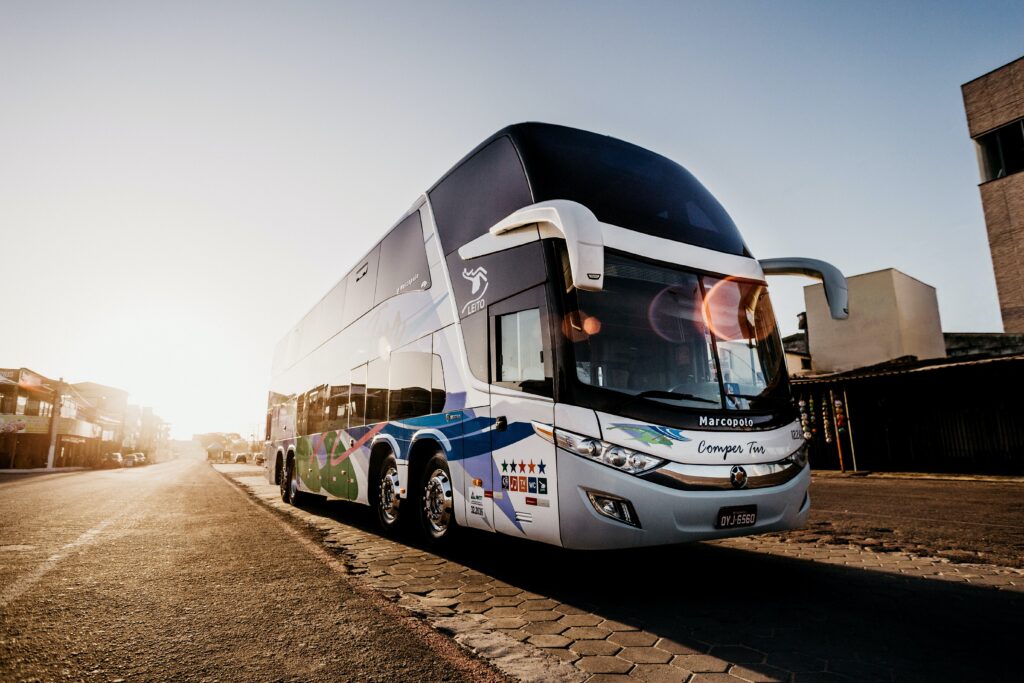
Looking to broaden the scope of your tour packages? Consider joining forces with local accommodations, top-notch restaurants, and other experience providers who align with your business ethos. Let’s say you run a travel agency and want to offer an all-encompassing experience – imagine pairing your thrilling city tours with a cozy bed-and-breakfast and the finest dining in town.
- Travel Agents : Tap into their network and offer your packages to a wider audience.
- Online Travel Agents (OTAs) : Increase your digital footprint and customer reach.
- Local Businesses : Collaborate for cross-promotion; think hotels offering your tour brochures in their lobbies.
- Wholesalers : They can package your tours with other services for a greater value proposition.
Final Thoughts
Crafting tour packages that resonate with travelers.
If you’re keen on curating tour packages that truly resonate with what travelers desire, consider your approach to content marketing . What makes your offerings gleam against a backdrop of options? It’s about more than presenting tours; it’s about narrating an experience that aligns with your audience’s travel fantasies.
Promotion must-haves :
- Regular website updates with engaging content
- Strategic marketing tools & campaigns
- SEO optimization to appear on Google search results
Sales Boosters :
- An easy-to-navigate booking system
- Package variations to encourage repeat bookings
Discover Versatile Reservation Tools
Ever found yourself swamped with managing bookings and wish there was a simpler way? Meet today’s top-tier online booking systems that are winning over businesses with their ease of use and seamless integration capabilities.
- Instant Efficiency : With a click, manage your reservations.
- Streamlined Services : Simplifies your booking process , effortlessly.
- Flexible Features : Adapts to your unique business needs.
Statistics show that businesses utilizing advanced reservation systems see a significant increase in bookings , often by as much as 20%.
Essential Components for a Captivating Tour Itinerary
Key items to include in your tour itinerary.
To capture the interest of travelers, your tour itinerary should be comprehensive and engaging. Essential elements include:
- Compelling Descriptions : Paint a vivid picture of the destinations to stir excitement.
- Varied Activities : Cater to different interests with a mix of cultural, recreational, and relaxing options.
- Clear Timelines : Provide a well-structured timeline that outlines the daily schedule while allowing for some flexibility.
- Logistical Details : Include information on transportation, meeting points, and accommodation options.
Tactics for Effective Marketing of Travel Packages
Harness various marketing strategies to attract travelers:
- Leverage Social Proof : Display reviews and testimonials as evidence of satisfied customers.
- Engage Through Storytelling : Share stories and experiences from past travelers to build a connection.
- Utilize Visual Content : High-quality images and videos can be powerful in showcasing your packages.
Innovative Promotion Methods for Tour Packages
To reach a broader audience, get creative with your promotions:
- Collaborations : Team up with influencers or local businesses to tap into new networks.
- Exclusive Events : Host webinars or live Q&A sessions to engage potential customers.
- Contests and Giveaways : Encourage sharing and participation for increased visibility.
Constructing a Package Tour That Captivates
When designing your package tour, consider the following steps:
- Define Your Audience : Know who you are designing the tour for.
- Curate Unique Experiences : Differentiate your offering with unique experiences.
- Price Competitively : Position your pricing based on the value offered.
- Pay Attention to Detail : Every component, from meals to activity duration, adds value.
Building Stand-Out Packages in the Travel Market
Travel agents aiming to excel in the market should focus on:
- Personalization : Offer customizable options so clients can tailor their experience.
- Diverse Offerings : Appeal to various niches like adventure travel or eco-tourism.
- Professional Touch : Present the packages in a high-quality, informative brochure.
Calculating Tour Package Costs Effectively
When pricing your tour packages, be mindful of:
- All-Inclusive Costs : Consider all expenses from transportation to entry fees.
- Profit Margin : Set a margin that reflects the quality of the experience while remaining competitive.

administrator
David Ciccarelli, is the Founder and CEO of Lake. He is based in Toronto, Canada, and is an expert in management, business administration, strategy, product development, and customer experience. His educational achievements include the Owner President Management Program at Harvard Business School (2019-2022) and the QuantumShift Program at Ivey Business School in 2017, aimed at CEOs of growing businesses.
- Tour Packages
Related Posts

October 29, 2023
Preparing Your Vacation Rental for Emergency Situations
While not expected, emergency situations may arise at your vacation rental. As such,...
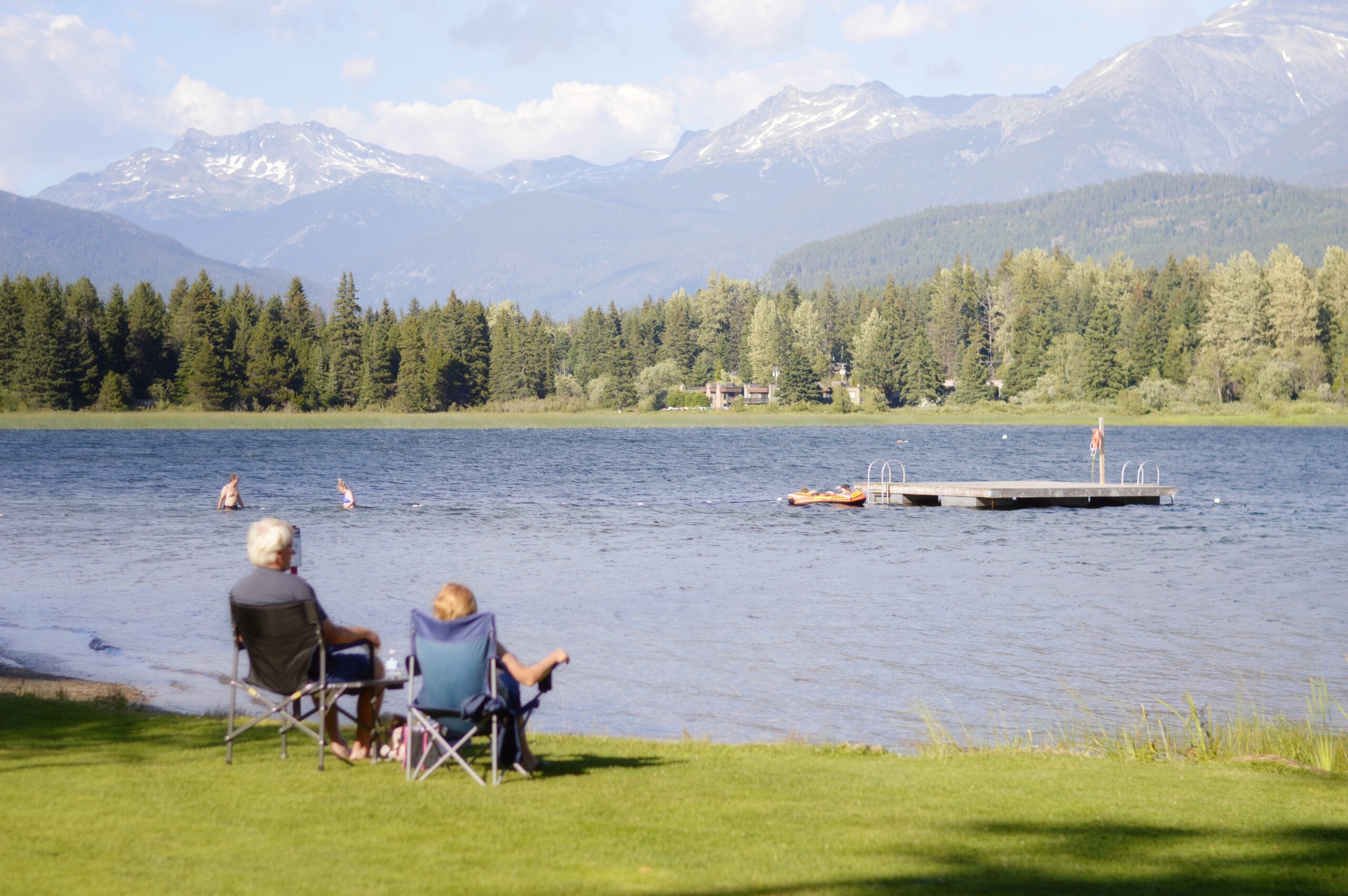
December 21, 2023
Vacation Rental Pricing Tools: Optimize Your Income with Smart Strategies
Striking the right balance with your Airbnb listing price can be a puzzling game. Are your...
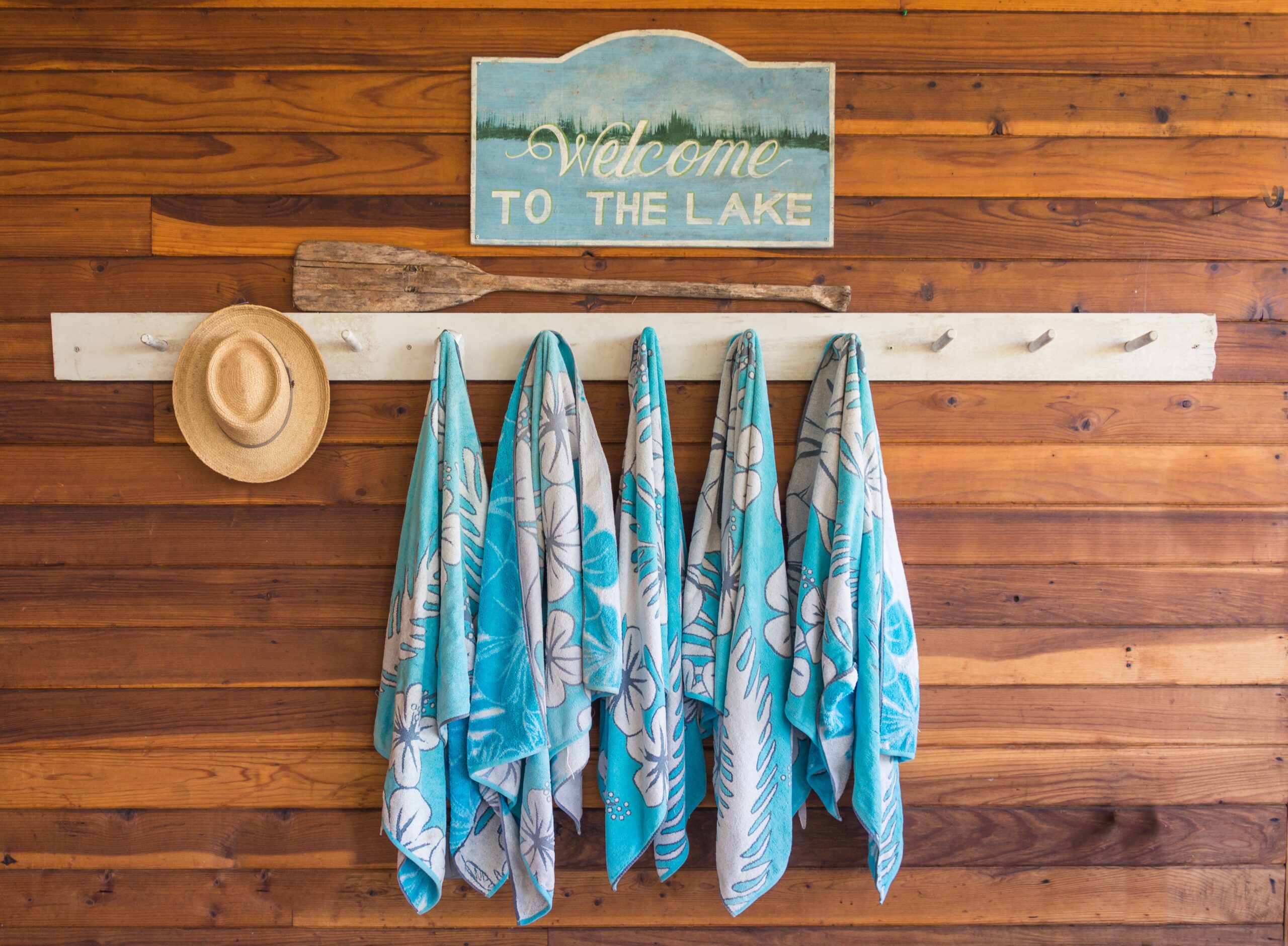
January 3, 2024
Vacation Rental Welcome Book: Crafting the Perfect Welcome for Guests
Thinking of hosting your lake house on Lake? Here is everything you need to know to create...
Don't have an account yet? Register
Already have an account? Sign In
Reset Password
Please enter your username or email address, you will receive a link to create a new password via email.
Understanding Package Tours in the Travel Industry
In the vibrant world of travel and tourism, a package tour is a pre-arranged holiday that combines a variety of travel services into one comprehensive package. These services typically include transportation, accommodation, meals, guided tours, and other amenities. Package tours are popular among travelers seeking convenience, affordability, and a stress-free vacation experience. Let's delve deeper into the concept of package tours and explore the key components that make them a preferred choice for many globetrotters.
Components of a Package Tour
A typical package tour includes several key components that are carefully curated to provide travelers with a seamless and enjoyable vacation experience. These components may vary depending on the destination, duration, and theme of the tour, but the following are some common elements found in most package tours:
- Transportation: Package tours often include round-trip transportation from the traveler's home to the destination. This may involve flights, train tickets, bus transfers, or other modes of transportation.
- Accommodation: Accommodation is a crucial part of any package tour. Travelers are typically provided with pre-booked hotel rooms, resorts, or other types of lodging that meet the tour's standards and budget.
- Meals: Many package tours include meal plans that cover breakfast, lunch, and dinner. These meals may be served at the hotel, local restaurants, or as part of guided tours.
- Guided Tours: To enhance the travel experience, package tours often include guided tours of popular attractions, historical sites, cultural landmarks, and other points of interest. Knowledgeable guides provide valuable insights and ensure that travelers make the most of their visit.
- Activities and Excursions: Depending on the tour package, travelers may have the opportunity to participate in various activities and excursions such as adventure sports, sightseeing tours, shopping trips, and cultural experiences.
- Transportation Within Destination: Package tours may also include transportation within the destination, such as airport transfers, shuttle services, or private vehicles for sightseeing.
- Travel Insurance: Some package tours offer optional or mandatory travel insurance to protect travelers against unforeseen circumstances such as trip cancellations, medical emergencies, or lost luggage.
Types of Package Tours
Package tours come in a variety of forms to cater to different preferences, budgets, and travel styles. Here are some common types of package tours that travelers can choose from:
- All-Inclusive Tours: These tours cover all major expenses, including transportation, accommodation, meals, activities, and sometimes even gratuities. Travelers can enjoy a hassle-free vacation without worrying about additional costs.
- Adventure Tours: Adventure tours are designed for thrill-seekers and outdoor enthusiasts who enjoy activities such as hiking, trekking, rafting, and wildlife safaris. These tours often include adrenaline-pumping experiences in exotic locations.
- Cultural Tours: Cultural tours focus on exploring the history, art, cuisine, and traditions of a destination. Travelers have the opportunity to immerse themselves in the local culture through visits to museums, historical sites, festivals, and interactions with residents.
- Luxury Tours: Luxury tours offer a premium travel experience with upscale accommodation, fine dining, exclusive amenities, and personalized services. These tours cater to travelers seeking a high level of comfort and sophistication.
- Group Tours: Group tours bring together a group of like-minded travelers who share a common interest in exploring a particular destination. These tours offer camaraderie, shared experiences, and the opportunity to make new friends along the way.
- Customized Tours: Some travel companies offer customized package tours that allow travelers to tailor the itinerary, activities, and accommodations to suit their preferences. This option is ideal for travelers looking for a personalized and flexible travel experience.
Benefits of Package Tours
Package tours offer several benefits that make them an attractive choice for travelers looking for a hassle-free and enjoyable vacation experience. Some of the key benefits of opting for a package tour include:
- Convenience: Package tours take the stress out of travel planning by bundling all essential services into one comprehensive package. Travelers can relax and enjoy their vacation without worrying about making individual arrangements for transportation, accommodation, and activities.
- Affordability: Package tours often provide cost savings compared to booking each component separately. Travel companies can negotiate discounted rates with airlines, hotels, and attractions, enabling travelers to enjoy a budget-friendly vacation without compromising on quality.
- Expertise: Package tours are curated by travel experts who have in-depth knowledge of the destination, local attractions, and cultural nuances. Travelers benefit from the expertise of guides and tour operators who ensure a well-rounded and enriching travel experience.
- Safety and Security: Traveling with a reputable tour company offers an added layer of safety and security. Tour operators have emergency protocols in place, experienced guides to assist travelers, and 24/7 support to address any unforeseen issues that may arise during the trip.
- Time-Saving: Package tours are designed to maximize the traveler's time by providing a well-structured itinerary with carefully planned activities and sightseeing opportunities. Travelers can make the most of their vacation without wasting time on logistics or decision-making.
- Local Insights: Guided tours included in package tours offer valuable insights into the destination's history, culture, and traditions. Travelers have the opportunity to learn from local experts and gain a deeper understanding of the places they visit.
Package tours are a popular choice for travelers seeking a convenient, affordable, and enriching vacation experience. By bundling transportation, accommodation, meals, guided tours, and other services into one comprehensive package, travelers can enjoy a stress-free journey with expert guidance and local insights. Whether you prefer adventure tours, cultural experiences, luxury getaways, or customized itineraries, there is a package tour to suit every taste and budget. So, the next time you plan your dream vacation, consider the benefits of a package tour and embark on a memorable journey filled with unforgettable experiences.
Upgrade Your Account
Select currency... eur €2.75/month (free 7-day trial) gbp £2.30/month (free 7-day trial) inr ₹199/month (free 7-day trial) usd $2.99/month (free 7-day trial).
- Unlimited Custom Itineraries for Trips up to 20 Days See Example
- Full access to extra itinerary information
- Customized Restaurant Lists For Your Itineraries
- Private Itineraries
- No Advertisements
- Standard Customer Support
Select Currency... EUR €4.49/month (Free 7-Day Trial) GBP £3.99/month (Free 7-Day Trial) INR ₹299/month (Free 7-Day Trial) USD $4.99/month (Free 7-Day Trial)
- Unlimited Custom Itineraries for Trips up to 30 Days See Example
- Latest AI For The Most Up To Date Info (As of April 2023)
- Priority Customer Support
"This is so awesome! We hired a travel agent for $200 and your AI just spit out almost exactly the same itinerary the agent planned for our honeymoon in Greece!"
"This is super cool. I did three days in a relatively small town, and it came up with a nice sounding trip (relaxation focused)."
- Redditor StillKickinginAZ
"This is incredible"
- Jenny Turner
TripMatrix Product Features
Manage the entire travel agency back office from start to finish. TripMatrix allows you to add your products and services, build trips, create and promote offers, payment processing, and much more.
Product Features
Contacts and Accounts
A simple way to add and manage contacts and accounts
Offers and Bookings
Create, send, receive, track predefined and tailor-made offers
Build dynamic itineraries by utilizing advanced route planner
Products and Services
Add and manage all your products and services
Web Booking Engine
Use WBE to promote your offerings worldwide
Travel Tech Insights, Events & Trends
Discover the latest trends and events in the travel tech industry.
TripMatrix Blog
TripMatrix Events
Video Tutorials

Streamline Your Travel Agency Operations with TripMatrix

Elevating Your Travel Agency with Smart Marketing and SaaS Solutions in 2024
All about TripMatrix
Learn more about Tripmatrix and find open positions, company culture, current team, etc.
The Complete Guide to Building a Tour Package
Aug 31, 2022
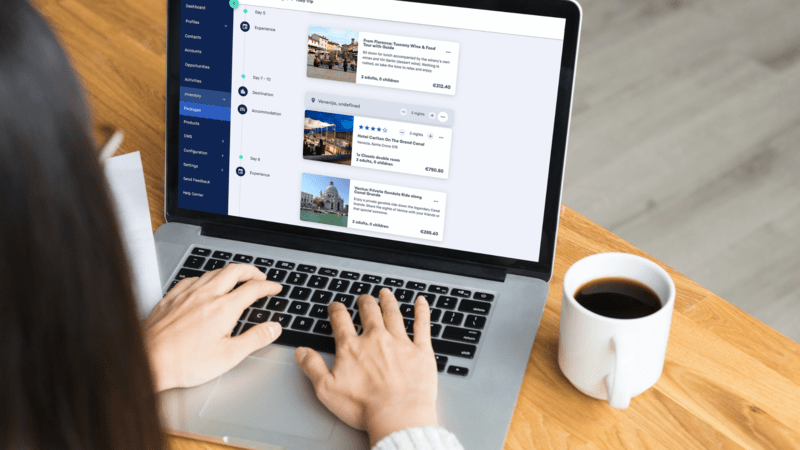
Why Create a Tour Package?
Tour packages allow you to combine more products and services into a single offering. Creating a customized tour package will increase your revenue, and your clients will get better value for money and a personalized travel experience. Unique tour packages can also make your travel business stand out from competitors. Find out more useful Tips for Increasing Sales in a Travel Agency.
5 Steps to Building a Tour Package
Unique and professional-looking tour packages are massively in demand. Every client will have their own needs and preferences, and travel agents need to be able to nimbly adjust their offerings accordingly. With the rise of personalized travel, a high-quality tour package builder is a must for every agent.
Creating an individual tour package for each client can take substantial time and effort. A trip builder module simplifies the process, giving you more time to invest in growing your travel business. Learn how to build a high-value tour package with TripMatrix Software in 5 easy steps.
1. Identify the Customer’s Needs
The first and most crucial step is to identify the customer’s needs. If you get this right at the beginning, your tour package will need fewer adjustments later. Knowing your clients also gives you good pointers on what to focus on while researching.
The key information to know about your clients:
- Number of travelers
- Budget range
- Duration of the trip
- Accommodation preferences
- Transportation and transfer needs
- Type of trip (family vacation, team building, romantic getaway, etc.)
Use the given information to establish a better relationship with your clients. Taking an individual approach and showing interest in their needs will signal that you care about them. You will also have to spend less time researching trip options with a more targeted approach. Understand the client’s needs and concentrate on building a customized tour package that will exceed their expectations.
2. Research Trip Options
After identifying the customer’s needs, the next step is researching the best trip options. Research is the most time-consuming activity for every travel agent, especially if you don’t have an established network of key partnerships within the travel industry. Even if you are already collaborating, you should always look for unique experiences to diversify your offer.
Small travel agents can find it hard to connect with other businesses, but TripMatrix Marketplace allows you to easily collaborate with big and small service providers. Whether you are on a hunt for a themed guided tour, luxury hotel, or safe transportation option, you can find trusted new potential partners within TripMatrix Marketplace, which will provide a unique local experience.
3. Build a Trip and Create an Offer
Once you have picked out the best trip options, you are ready to build a trip and create an offer. Beforehand, make sure to upload your products and services. You can create and edit products and services effortlessly with TripMatrix Inventory Management; you only need to select the correct category (accommodation, transportation, experience, etc.), add images, and create descriptions. You can even pull images and descriptions directly from Google to save time.
After you have selected transportation, accommodation, and activities for a tour package, start designing an in-depth trip plan. TripMatrix’s trip builder module enables tour agents to include a route planner and a full itinerary. Finally, add the price and profit margins for each service and product (visible only to you). Read more about using a TripMatrix Trip Builder in our blog Trip Planner Software for Travel Agencies.
4. Offer Modifications
Forget about downloading your offer in PDF documents, you can simply send all tour packages created in TripMatrix via a custom link. Clients can click on the route planner connected to Google Maps and scroll through the hotel photos, and an interactive itinerary will give them a better idea of their trip.
In most cases, personalized tour packages demand more effort. The good news is that with TripMatrix trip builder, you can always modify your tour packages following clients’ feedback. Each product, service, and tour package is stored in the Cloud, so you won’t have to worry about losing any data.
Communicate with the client in a direct chat and find out if there is room for improvement. Offer modifications can be done directly inside the itinerary, allowing prospects to see changes immediately. You can always update an existing offer if you have a client interested in a similar tour package. Each previous offer can be a starting point for a new client with similar needs.
5. Payment Processing and Commission Distribution
Once your client is satisfied with their personalized tour package, they can complete payment directly within the TripMatrix platform. TripMatrix’s high-quality online booking experience provides secure payment and also allows the travel agent to have access to each client’s payment processing.
You can see the confirmation directly within the software when the client finalizes payment. If your client hasn’t completed their online booking, you can follow up to get more information.
Since TripMatrix includes automated payment processing, commission distribution, and refunds, you can manage the whole payment process inside the platform.
Individualized tour packages are beneficial for both travel agents and travelers. While travel agents can increase revenue and establish strong partnerships, travelers can get a better value for money and get the most out of their travel experience.
Before researching and building a tour package, it is crucial to identify your customer’s needs. Get to know your client; understanding them will make your part of the work easier. Also, showing interest in their needs will help you create better trips and improve customer experience.
Research trip options and extend your offerings with TripMatrix Marketplace. Find partners to complete and upgrade your tour packages. After you create a tour package in the trip builder, you can easily make modifications. When your tour package is done, track payment within the platform.
What is a tour package?
Tour packages allow you to combine more products and services into a single offering. Creating a customized tour package will increase your revenue, and your clients will get better value for money and a personalized travel experience. Discover how TripMatrix software can help you build unique tour packages.
What is TripMatrix travel agency software?
TripMatrix is a commission-based all-in-one travel agency software for selling and managing travel products and services. Get custom pricing today.
Recent Posts


How to Create and Promote Amazing Tour Packages

Table of Contents
As a tour operator, finding new ways to improve your customers’ experience while also increasing profitability for your business should always be top of mind. A great way to attract more customers and increase your tour bookings is to offer tour packages. By creating and selling travel packages, you’re addressing the needs of a specific type of traveler, one who is looking for a fuller travel experience with the added benefits of convenience and savings.
Today we’ll be discussing the benefits of tour packages, how to effectively create and sell your own travel package, and how Rezgo’s tour packaging system can help.
What Are Tour Packages?
Tour packages are a combination of separate (but typically related) tourism products and services that are presented and sold as one. Customers pay for all the components of a tour package and receive details of their itinerary prior to travel. A typical tour package example is one that includes travel to and from the destination, accommodation, meal arrangements, and activities or excursions.
Tour Package Example
As with this example, when people think of tour packages, they often think of packages that include services from multiple vendors. Tour packages can, however, consist of offerings from a single tour provider. Rezgo’s tour packaging system is designed to help you create and promote travel packages of your own tour products, but also offer resellers the option to package services from multiple tour businesses as well.
What Are The Benefits Of Tour Packages?
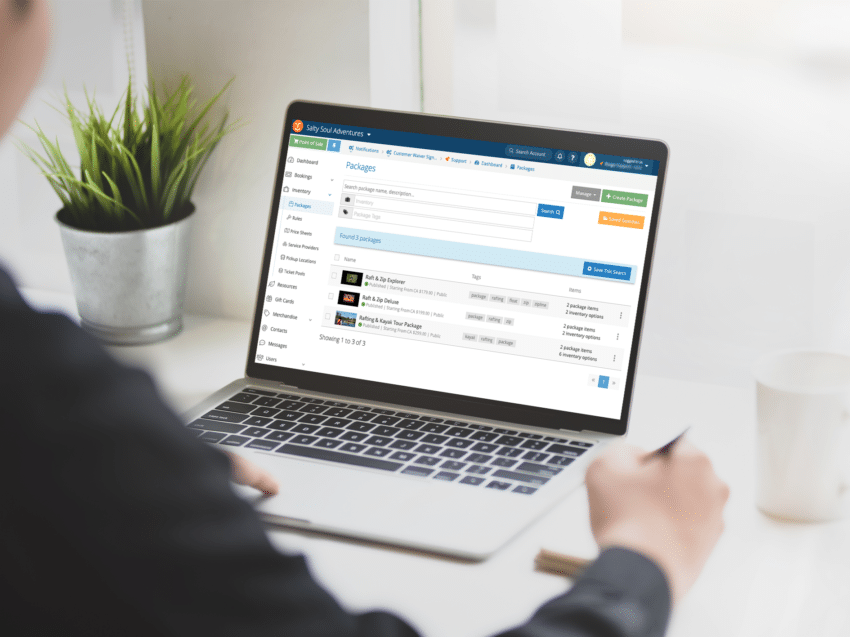
Opinions regarding the benefits of tour packages versus purchasing various travel components on your own vary with each traveller. To create and market the best tour package possible, it’s important to understand what customers are looking for in a travel package.
Benefits of Tour Packages
- Convenience – Purchasing a tour package that includes multiple services or experiences in one saves customers the time and energy needed to locate and research them individually. Travelers who prefer tour packages tend to like to avoid the work involved with booking each travel component separately.
- Cost Savings – It’s expected that customers enjoy cost savings when booking a tour package. Tour operators will often provide discounts or special rates for purchasing multiple tour products or services.
- Security / Reassurance – Booking a tour package put together by a tour operator and that has been vetted by other travelers provides customers with a sense of security and reassurance.
Equally important is to be aware of why some customers would prefer to plan their vacation on their own. Understanding the concerns and wants of these travelers can potentially help create a tour package that addresses their concerns and converts them into bookings.
Benefits of Planning Your Own Trip

- Flexibility – Planning a tour experience on your own provides some additional flexibility. Customers are not bound to any constraints that may be present when booking a tour package.
- Options – Sometimes not all travel or tour options are presented when browsing tour packages. Customers may feel like their options are being artificially limited by the tour operator’s preferences or reach.
- Individualized Experience – Customers who want to customize their trip and have an authentic experience tend to avoid booking tour packages over concerns of receiving a limited, tourist-centric experience.
What Kind Of Customers Enjoy Tour Packages?
Now that we’ve gone through the benefits of tour packages versus the benefits of planning a trip on your own, we can begin to understand the kinds of customers who enjoy tour packages. Above all, travellers drawn to trip packages are looking for the convenience and cost savings associated with them. They aren’t concerned about customizing every detail of their trip and are happy to entrust their experience to the tour operator or company. Tour package customers are attracted to the ease and hassle-free booking process and want the best deal possible.
Creating A Great Tour Package

Taking what we know about our audience and what they look for when purchasing a tour package, we can implement strategies that will help us create fantastic trip packages of our own. With Rezgo’s tour packaging system, you’re able to group or combine various tour products together and offer them at a discount that is both attractive to the customer and profitable for your business. What you choose to group and how you decide to package them is up to you. You have the freedom to package travel arrangements to and from your destination, pair up your activities with equipment rentals, or even group multiple experiences together for a multi-day excursion. Need some inspiration for your tour packages? Check out these 15 innovative tourism business ideas !
Remember, customers browsing travel packages for their trip are looking for convenience and freedom from having to handle all the little details. Whatever you choose to include in your tour package, make sure that you’re making it as streamlined and stress-free an experience as possible. Include as many relevant details in your tour package descriptions and preemptively answer questions that your customers might have regarding what is or isn’t included. Highlight the benefits of your tour package when compared to an individual tour and include details about discounts or deals. Customers should feel like once they book your trip package, all that’s left for them to do is enjoy their amazing vacation.
How to Market and Promote Your Tour Package

While there are definitely a few different factors to consider when marketing and promoting tour packages versus an individual tour, the fundamentals remain the same. To successfully market your tour package you need to first understand your target market or audience. That is, who are you selling your tour package to? You can then begin to build a marketing strategy aligned with the needs and wants of your target audience. As mentioned earlier, travellers expect discounts when booking travel packages so be sure to carefully consider your tour package costing so as to provide a great deal for your customer while keeping your business profitable and sustainable.
For an in-depth look at effectively selling your tour package, we suggest checking out our post on how to promote tour packages online and familiarising yourself with the 7 Ps of travel and tourism marketing .
Closing Thoughts
Tour packages are a great way to combine and sell your tour products and services in a way that is attractive to your customers and profitable to your business. By understanding the benefits of a tour package over individually booking tours and addressing the needs of your target audience, you’re able to effectively create, market, and promote your own travel packages.
We’re excited for you to try out our new tour packaging system and look forward to seeing all the amazing tour packages you build for your business!
What should be included in tour packages?
Include transportation , accommodations, meals, guided tours, and activities. Detail what’s covered and any extra costs.
What is the difference between a Tour package and an itinerary?
A tour package bundles services for one price. An itinerary outlines trip details but doesn’t include bookings.
Should my tour package have add-ons?
Yes, offer add-ons for customization. It enhances the experience and meets diverse traveller preferences.

Written By | Edward Nieh
Edward Nieh is a freelance writer and copy editor working across multiple mediums for clients from various industries. He has a degree in creative writing with a focus on screenwriting for feature films.
Previous Article Private tours are a growing trend in 2024. Are you ready?
Next Article 10 Creative Ways to Expand Your Tour Business (Without Breaking the Bank)
Related Posts

Articles , Increase Online Bookings , Tourism Trends
Set-jetting, forest bathing, and hush trips: 20 innovative tourism business ideas and trends for 2023.
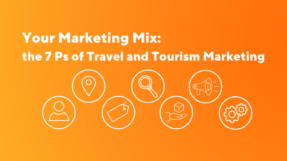
Articles , Increase Online Bookings , Marketing Strategies
Your marketing mix: the 7 ps of travel and tourism marketing.
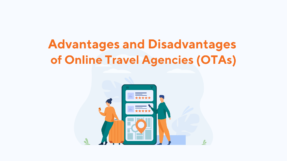
Articles , Increase Online Bookings , Tourism Best Practices
Advantages and disadvantages of online travel agencies (otas), search the blog.
- All Categories
- Increase Online Bookings
Most Popular Articles
- Set-jetting, Forest Bathing, and Hush Trips: 20 Innovative Tourism Business Ideas and Trends for 2023 84 views
- Advantages and Disadvantages of Online Travel Agencies (OTAs) 38 views
- How to Create and Promote Amazing Tour Packages 30 views
- Your Marketing Mix: the 7 Ps of Travel and Tourism Marketing 22 views
- How to Create a Business Plan for Your Tour or Travel Company 20 views
I have read and agree to the Rezgo Privacy Policy
GET STARTED
Sign-up for a free demo.
Lorem ipsum dolor sit amet, consectetur adipiscing elit, sed do eiusmo tempor incididunt ut labore et dolore magna aliqua.
Schedule A Demo
How to Create a Tour Package in 6 Simple Steps
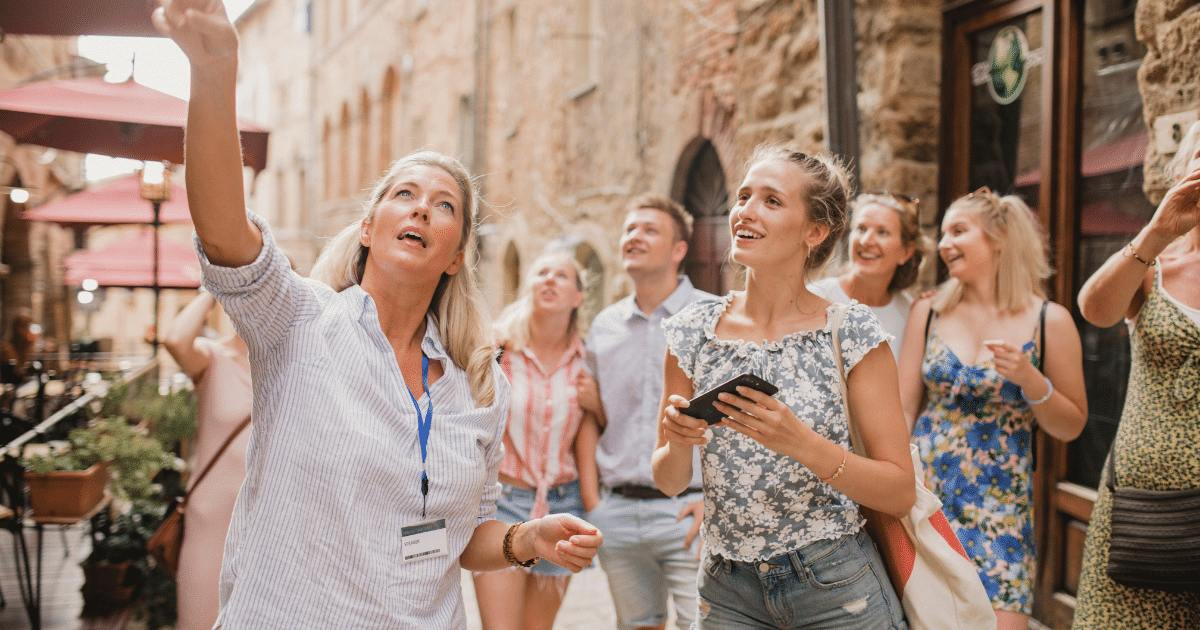
By Blake Ng — 26 Nov 2018
distribution marketing operations tour operator
Updated April 2022 – As a tour company, you may be seeking effective ways on how to create a tour package that’s enticing for your customers. A packaged tour combines elements that would be a hassle to coordinate separately, such as transport, attractions, meals, and entertainment. With the ease of a tour package, these elements can be easily bought as one and provides convenience for your customers.
Travelers looking for a hassle-free trip usually seek an all-inclusive tour package. It’s an enticing product to promote and include within your marketing strategy and can help you boost your bookings. Most travelers would usually seek a travel agency to provide them with the best packages. However, if you could set up tour packages yourself, you may be able to attract customers to book packages through you directly.
What do customers look for in a tour package?
When understanding the first steps on how to create a tour package, you need to understand your target audience. What is it that they prioritize? Is it affordable airfare? Easy car rental? Flexible cancellation policies? or a particular destination that can cater for their entire trip? Understanding your target audience is key to building enticing tour packages.
Once you’ve nailed your tourism market research, make it easy for your website visitor to identify the different types of tours you offer.
Points to outline in your descriptions should include:
- Types of tours (day tours, adventure tours, family-friendly getaways, group tours, sightseeing, etc.)
- The estimated total cost and budget per guest or booking
- The total duration of the vacation package
- The different travel products included (transportation, tours, activities, etc)
- Age range. Are there any age limitations?
The price of your products should be set 12 months in advance, and it should include all your costs – product development, entry and guide fees, meals, maintenance, and marketing.
If you want to partner with other travel companies (which you totally should), make sure that
- Everyone has a good profit margin but is still able to provide competitive prices
- You have allowed for unexpected costs
- You have determined product break-even points
It would also be smart to ask everyone involved to promote and sell the package.
If you want to reduce your package price, remember not to compromise quality. It should be your last option. Consider other strategies that will make your tours more competitive.
2. Commission

Depending on the market you’re targeting, you will need to consider the commission you pay your agents. It differs from 10-30% depending on the type of agent involved.
If your market is overseas, you’ll likely be dealing with inbound tour providers, and they will expect a commission of 25-30%.
Want to learn more about agent commission rates and how to calculate commission breakdowns? Click here .
3. Legal Implications
When creating a tour package, you need to provide explicit conditions of the sale of the tour package in order to avoid any confusion. Tour wholesalers and retail travel agents must:
- Provide explicit conditions of sale
- Be selective with product endorsements
You don’t want to be involved in a customer complaint about your failure to deliver or misleading advertising.
It’s recommended that you work closely with a lawyer in order to develop the right language for your tour package. Since travel agents will need these legal conditions in place before they can resell your product, it’s best you have your terms and conditions prepared before promoting your tour packages.
4. Travel packages & promotion
How you distribute your package will determine your success. You should conduct product and package familiarisations for retail agents, wholesalers, and sample target markets.
Packaging for overseas:
Contact distributors who understand international packages and markets. You may not even need to create a package, because the international tour operator may bundle a range of products, including yours, for a wholesaler. Remember to screen your overseas resellers, too.
Packaging for domestic markets:
Trialing domestic markets before going international is probably the safer option when first starting out. It’s a more cost-effective and less complicated option.
You can start by targeting the following groups:
- Clubs and associations members (particularly those that cater to retirees)
- Schools and educational institutions (if your product has educational content, create an excursion package)
- Families (they will want the value for money)
Testing the waters within your local travel industry will also generally produce faster results.
Remember to include special interest groups and individuals in your marketing – for example, sports, festivals, and arts.
5. Complementary Product Packaging
Partnering with other tour operators who offer complementary products is a smart way to reduce your promotion costs while making your package more appealing.
For example, you can offer:
- A range of products from an area to specific niches with related interests
- A selection of products in a destination where a customer can create personalized experiences

Last, but certainly not least, is timing. When you set your availability, remember to consider your high season and the popular time of year that your target markets come by. Sometimes, however, tour packages can be the perfect answer to your off-peak season too.
The return on your investment will be gradual, so don’t expect an immediate return. Profits can take up to 2-3 years but can be achieved earlier if you get your distribution strategy right.
You can do things to speed up the process, like choose online booking software that allows agents to check your availability and book immediately. Make sure it isn’t commission-based so it doesn’t eat into your profits.
Curious to see how you can organize your tour packages with Rezdy? Start your FREE 21-day trial or request a demo today.
If you enjoyed this article – 6 ways to package tourism products – then follow the Rezdy blog . There are a lot of marketing tools and resources designed with businesses like yours in mind.
Start your free trial today
Enjoy 21 days to take a look around and see if we are a good fit for your business.

Vaxications: How to tap into the industry’s pent-up travel demand

Guide to growing a charter boat business: 12 tips for operators

How to sell tours online & get more bookings
How Does a Tour Operator Package a Tour?
Welcome, tour operators! 🌍✈️ This guide is about creating amazing tours that travelers will love. Whether you're experienced or new to this, we'll show you how to plan and execute great tours.
We'll cover five easy ways to put together exciting tour packages, with examples to help you get started.
1. Themed Tours

Tour operators create packages around specific themes or interests, such as culinary tours , adventure tours, historical tours, or wellness retreats. These themes help attract travelers with similar interests and preferences.
For example: A tour operator creates a culinary adventure package that includes visits to renowned local restaurants, cooking classes with top chefs, and guided tours of vibrant food markets.
2. Destination-Centric Packages

Packages are designed around popular destinations, cities, or regions. They include a mix of must-visit attractions, cultural experiences, and accommodations tailored to the destination's vibe.
For example: A tour operator offers a package focused on exploring Europe's top cities, such as Paris, Rome, and Barcelona. It includes guided tours of iconic landmarks, stays in centrally located hotels, and cultural experiences unique to each destination.

3. Customizable Tours

Tour operators offer customizable packages, allowing travelers to select from a menu of options. This flexibility allows customers to tailor the tour to their preferences, whether it's choosing specific activities, accommodations, or dining experiences.
For example: Travelers can customize their African safari by choosing the length of the trip, preferred national parks , types of accommodations (luxury lodges or budget camps), and specific wildlife activities like game drives or hot air balloon safaris.
4. Group Tours
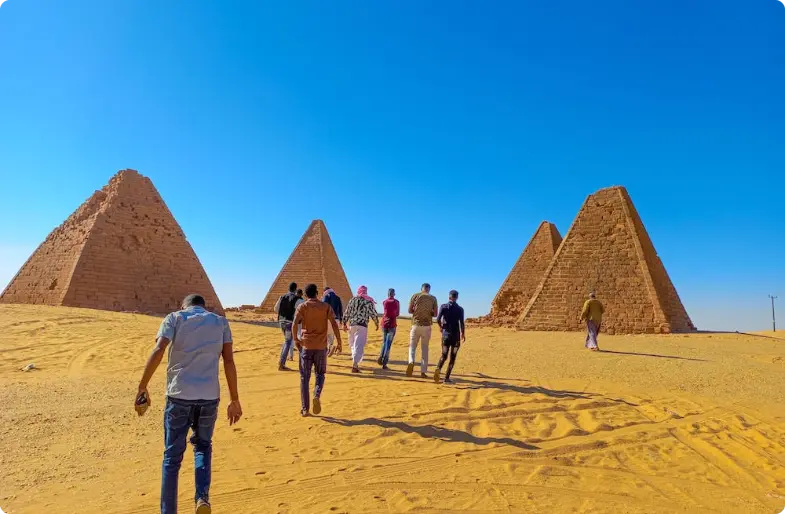
Group packages cater to travelers who prefer to explore with others. These tours include set itineraries, group activities, and shared accommodations, making them cost-effective and social.
For example: A tour operator organizes a group cycling tour through scenic countryside. Travelers join a group of fellow cyclists for daily rides, with accommodations and meals provided along the route.
5. Seasonal or Event-Based Packages

Tour operators create packages around specific seasons, festivals, or events in a destination. For example, they might offer holiday packages, ski vacations, or packages for major cultural festivals.
For example: A tour operator offers a winter package to experience the magic of the holiday season in a European city like Vienna. It includes Christmas market tours, classical music concerts, and stays in charming winter-themed hotels.
Tour operators are crucial in the travel industry, creating amazing experiences for travelers. This guide has shown how tour packaging combines creativity and careful planning.
Tour operators design various trips, from themed journeys to tours of specific destinations, turning travelers' dreams into real adventures. They offer personalized trips, group travels, and seasonal tours , making travel more enjoyable.
This guide is a tool for tour operators to keep innovating and personalizing travel experiences. Remember, your work is more than just a business – it's an art that turns dreams into reality. Here's to creating unforgettable, extraordinary journeys! 🌍✈️🌟
Frequently Asked Questions
How do you package a tour.
To package a tour, a tour company first creates a tour itinerary that appeals to its target market. This involves selecting services, accommodations, and transportation options that enhance the travel experience.
The package may also include various add-ons like rental cars or special activities. Key considerations include balancing the itinerary with the interests of the target audience, ensuring availability, and setting an attractive price point.
What is a package tour operator?
A package tour operator is a company that specializes in assembling complete travel packages, often known as vacation packages. These packages typically include various elements like hotel bookings, transportation, and other services.
The operator works to provide a seamless travel experience, handling all the logistics and offering these combinations at a bundled price.
How does a tour operator work?
A tour operator works by designing and selling travel packages to consumers or through travel agents and other tour operators. They often find partners in the domestic market and beyond to offer a range of tourism products.
By forming key partnerships with hotels, airlines, and other service providers, they can package tours and offer competitive prices, therefore increase revenue. Operators focus on maintaining profit margins while ensuring the packages offer value and meet customer expectations.
What is a standard tour package?
A standard tour package typically includes all major components of an entire trip to a particular destination. This often covers accommodation, transportation, and access to key attractions.
Designed to save time and money for most travelers, including solo travelers, these packages are priced to cover all costs in a convenient, bundled offering. Standard packages are popular for their ease of booking and comprehensive nature, simplifying travel planning for a variety of destinations.
Get the latest news and stay in touch with the industry secrets.
By clicking "Subscribe", you agree to our Privacy Policy and the data we do collect.

The Ultimate Booking Platform Comparison: Peek Pro vs Fareharbor vs Ticketinghub

How to Use Travel Email Marketing to Boost Travel Bookings

14 Proven Strategies to Boost Bookings of Amusement Park Operators

Unlocking Growth for Your Tourism Business: Leveraging Distribution & Channel Management Tools
Keep Reading

Learn how to create irresistible tour packages that stand out. Get insights on crafting tours that cater to various traveler preferences.
How to Handle Group Reservations Like a Pro
Mastering group travel bookings? Dive into key strategies for seamless group trips from clear communication to real-time to real-time tools.
What Does A Tour Package Include
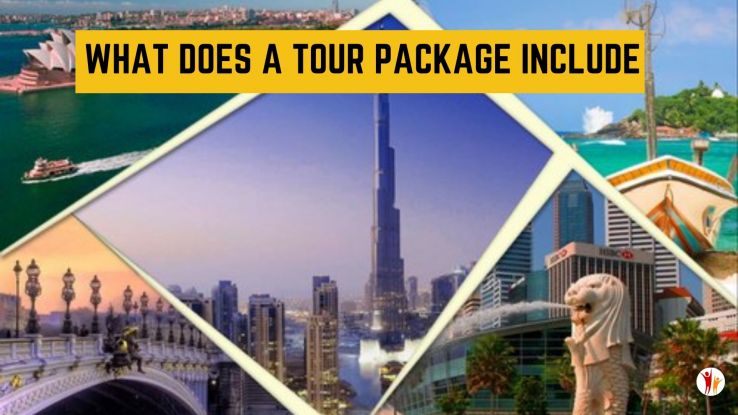
Planning for a trip is not easy especially if its an international trip or a long vacation. The tasks involved from booking tickets to visa processing is a tedious process and no one wants to get exhausted before the trip even started. Thus to keep in mind the needs of travelers, it is important to have the right tour package according to the needs and demands of the traveler. Tour packages decide whether your trip is going to be fun or bad one, a finely organized tour package will take care of all your needs and requirements. There are various kinds of tours such as Independent tours wherein tour package will be organized according to your independent needs and requirements. The other is a Business tour package, where all your business-related requirements are taken care of so that you have a fruitful trip. Others are leisure and fun tours, which are organized specifically keeping in mind the fun quotient. Not just that, tour packages are also planned as age-specific, wherein old people can have a trip according to their comforts and youngsters can enjoy their own travel packages. Here we have listed a few points, which should be part of all the tour packages so that travelers can have a wonderful trip.
1. Visa services and processing
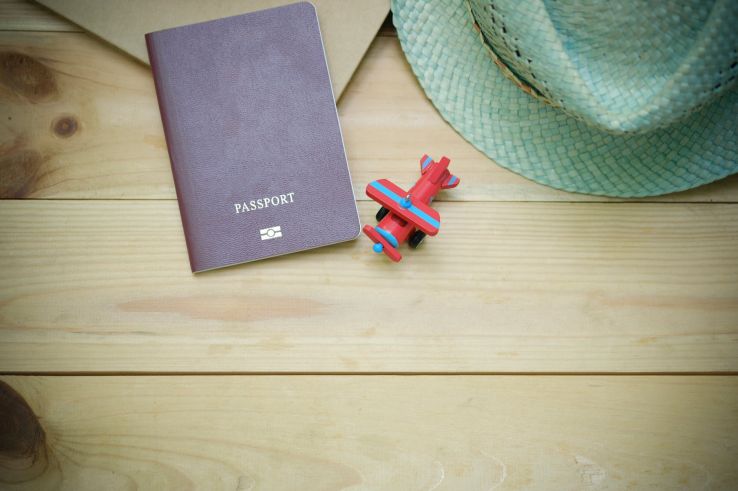
Visa services and processing is the most important part of planning for any trip. It’s one of the most tiresome procedure, thus an ideal tour package includes the visa processing services, where you just have to provide them all the requisite documents and rest everything will get done by their agents.
2. Air Tickets and Returns
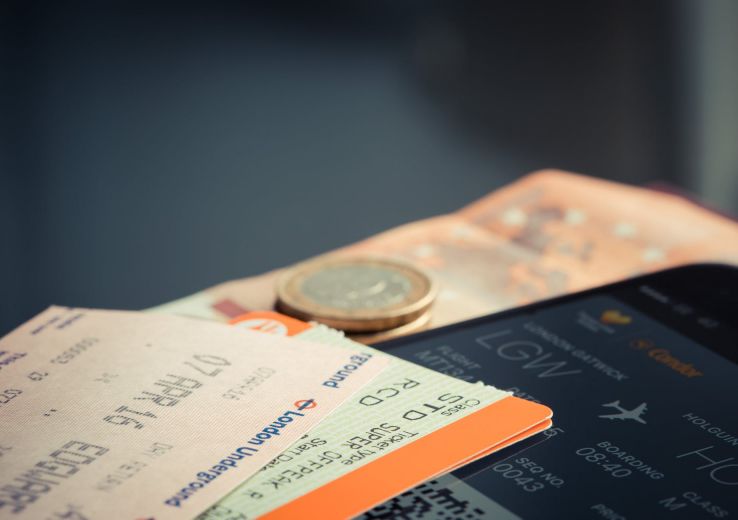
When it’s about booking the air tickets, searching for the right day and cheapest price is a lot of work. Where you have to search on various websites and check for the right price. Whereas tour packages save you from all the research work and book your tickets and returns in cheapest possible prices.
3. Hotels booking
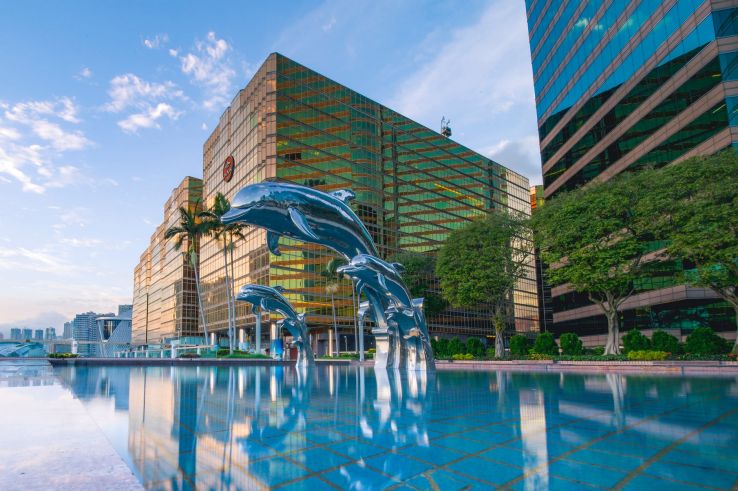
Another task of any trip is booking the right hotel with the right connectivity, as if your hotel is not at the right location, you might end up wasting a lot of amount on transportation. Thus tour packages book for you the right hotel at the right location.
4. Arrangements of meals
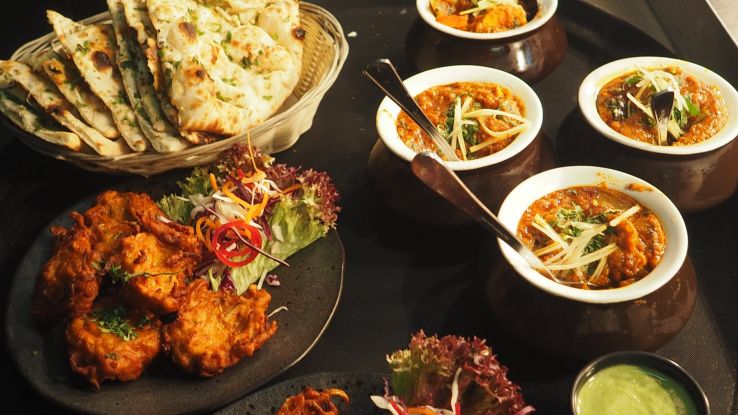
Tour packages arrange for your meals from, which restaurant you should eat and where you should dine are the part of your tour package.
5. Sightseeing
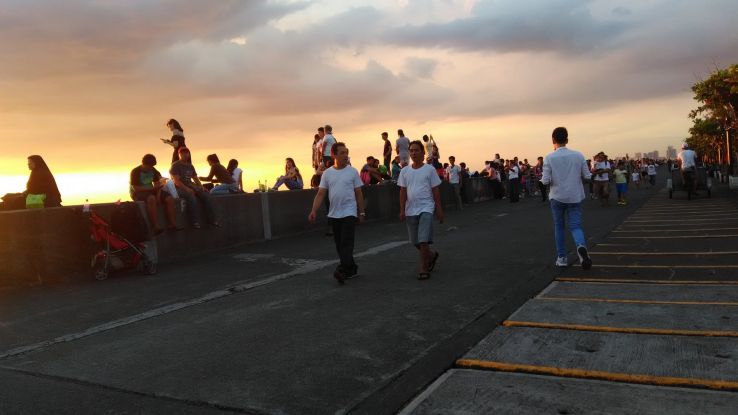
The ideal tour package includes all the sightseeing sites in the itinerary and covers all the major and popular sights of the city you are traveling to.
6. Inter and Intracity transport bookings
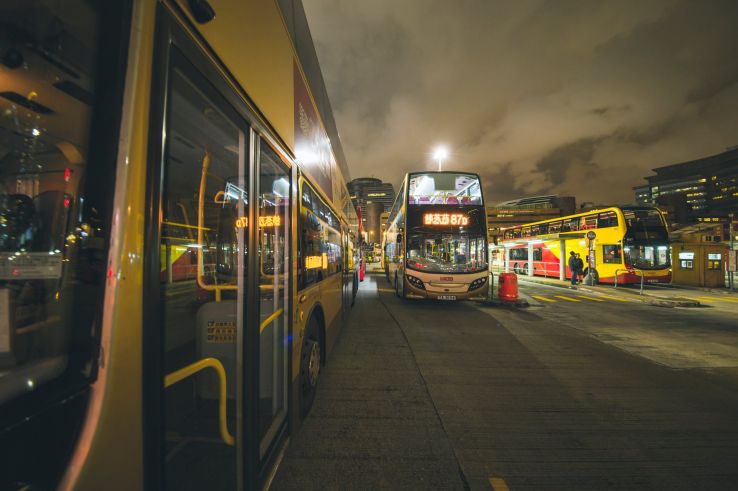
There is no need to get worried about how to travel within the city and to the connecting city. Tour packages include all the transportation facilities and charges within their tour package to make your life easy.
7. Adventure and fun activities
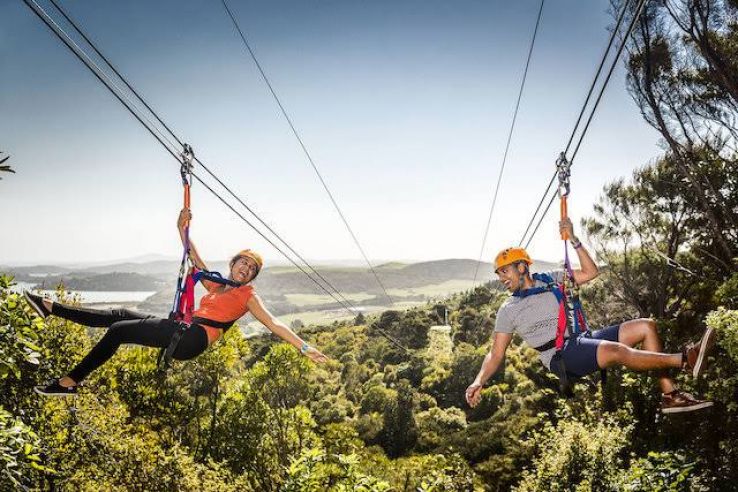
One can also take part in the adventure and fun activities, which happen in the city such as Theme parks, adventure parks are also the parts of the tour packages.
- Travel tips
Recommended For You

Similar Stories
Here is the list of top Kerala Tour Packages with price. Call 08048736040 to Enquire
Goa has been a popular beach destination, people from around the world visit here to enjoy the beauty of Goa. As it is believed that Goa has its own charm, that attracts people to come back again and again here. The natural beauty, Portuguese architecture, amazing nightlife, and delectable food makes Goa, even more, a destination, where people come to relax and party. So to make your trip to Goa the most memorable one, we have curated here some of the best Goa Packages and Goa tour deals to book.
Call 08048736040 to Enquire
Book your Manali tour packages at best price with HelloTravel.com & get exciting deals on Manali vacation.
Popular Stories
Sponsored stories.
- Enquiry Form
To City (Destination)
Travel Date
Travel Duration (In Days)
Travel With
Interested In
Budget (in INR)
Ticket Booked ?
Ticket Required?
Mode of Transport
Ticket Category
I will book
Date of Birth
Marital Status
Income (Per Month)
Nationality
Preferred Language
No. of International Trips
Do you have a Visa ?
Do you have a Passport?
Preferred Time to Call
We have identified additional inquiries related to your tour. Please review them and let us know if there are any inquiries you would like us to remove.
1,00,00,000+
You are using an outdated browser. Please upgrade your browser to improve your experience.
How to Make Tour Packages That Sell Themselves
By Breanna Lawlor
Share this article:
- Facebook icon
- LinkedIn icon
- Twitter icon
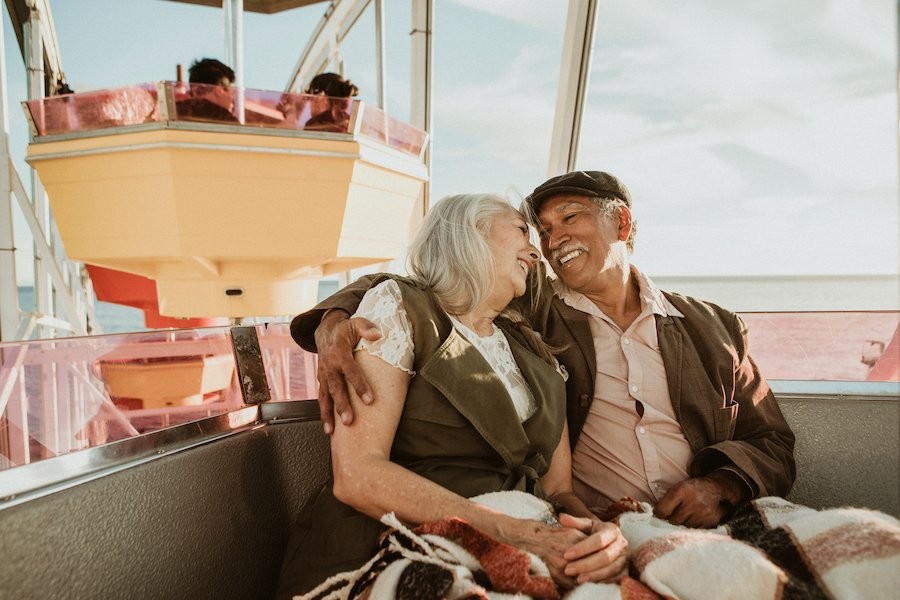
As experience providers, learning how to make tour packages is key for running a thriving tour business.
As more customers move towards online bookings, creating a variety of desirable tour packages gives future guests a way to compare a variety of options with ease.
For many travelers, being able to save time and money with different tour packages is high on their list of priorities. With an emphasis on adding value, tour packages can lead to increased revenue and a remarkable experience for guests.
By packaging tours and doing the bulk of the work for your guests, you can provide a high-value experience. As a tour operator, it can be tough to figure out what to include in your different tour offerings, so we’ve created a step-by-step process to building and creating irresistible tour packages.

Create unbeatable tour packages with Checkfront!
Online bookings. Flexible pricing. Outstanding support.
Determine who you’re creating a tour package for
As travelers explore options online, they’ll find themselves drawn to certain experiences based on details, images and previous guest reviews of each tour.
In looking at travel trends, this tourism article mentions how some guests might be seeking quality time with friends and family, while others might be highly motivated for adventure travel or the serenity of a solo escape.
When brainstorming options for a tour package, ask yourself who you’re looking to connect with. Is your tour package geared towards:
- Adventure-seekers?
- Culturally-motivated travelers?
- Honeymooning couples
- Luxurious travelers?
- Mature travelers?
- Solo travelers
- Young families
What guests expect to see in a tour package
Your tour package pitch should speak to the customers’ travel desires. If you can create an emotional connection to your offer, you’re off to the races.
Make it easy for a website visitor to identify if an experience is for them based on your tour description. To further outline your tour package offer, consider these points:
- Cost / Budget Estimate per guest/booking
- Is accommodation covered? If so, what type?
- How long will an experience last?
- Are there multiple activities in this package or multiple companies?
- Tour type (kid-friendly, adventurous, overnight, multi-day)?
The importance of a package tour
The importance of a package tour is how it gives guests peace of mind knowing that the majority, if not all — of their trip is being looked after by a professional. This is why guests will pay more for a tour package because the added benefit of booking a tour package is how much time a guest can save.
Take multi-day tours for example — where transportation, lodging and meals are provided, meaning all the guest has to do is show up! Most travelers appreciate having all of the information and activities laid out for them because it means they can shift into vacation mode that much faster.
Packages extending over multiple days offer more value when guests start to consider the logistics of transportation, food and value-added activities. Most travelers will pay extra for the convenience of someone else looking after the less glamorous and logistical parts of travel.
Another perk is that when guests secure a tour package, there is a sense of commitment and therefore, they may be less likely to cancel their plans. Packaging your tours with fellow activity and tour providers creates a greater sense of community while making it easier for you to increase revenue and profits.

Components of a standard packaged tour
Define what it is you’re going to provide for guests, including:
- Activities offered
- A base number of guests for the tour to go ahead
- Whether additional equipment or rentals are included
- Whether transportation is included
- Duration of the booking
- Whether it’s self-guided or lead by a tour guide
Here’s a step-by-step process for building a tour package
What are guests going to be looking for? A tour package that provides them with the most value and minimizes how much work they have to do. Be the solution for their travel desires with a thoughtfully curated tour package offer. Here are 5 steps to creating a desirable tour package:
1. Research similar tours
When it comes to starting a tour business from scratch, you’ll want to see what else is in your industry and geographic area. Base your tour package ideas on the interests of your target market and what you think will sell well given your area of expertise, competition and location.
Most tour operators will do some preliminary research and have an understanding of competitors in their immediate market. So as guests evaluate their options, assume they will also be considering fellow tour operators in your area. Consider what you can offer that will allow you to stand out from the competition, including different timing, customizable value-adds and even an option to include a meal as part of the tour.
2. Figure out timing
When creating your tours, you’ll want to take duration, departure times and tour frequency into account to make sure it’s going to be sustainable and profitable for your tour business.
Will your tour business operate from one location or can guests receive a delivery as part of their tour package for the activity they choose?
3. Customize the tour
List activities or attractions you’d like to include in the tour package. Give guests a map to go along with their tour so they can feel independent.
Offering add-ons gives guests the option to customize tour packages. You might include way-finding, routes or rental equipment or source from another local activity provider.
4. Decide on pricing
To incentivize people to book in groups, you can try offering group discounts based on a certain number of guests. This works especially well for guests to book with people they know and lets customers take advantage of group pricing.
You can land on pricing per guest or per booking, depending on what works best for your tour business. Some companies operate with a minimum guest amount to cover their bottom line, with every additional guest leading to more profits.

5. Use images
Be sure to include photos and videos to help sell your tour packages. If you can structure your package details to include all of the relevant information a potential guest would need to know about prior to booking, you make it easy for them to book.
Publish your tours with exciting photos of guests enjoying the experience and the scenery a future visitor might expect to experience. Photos allow guests to visualize themselves doing the activity, making photos essential in your travel marketing efforts.
In addition, encourage website visitors to read reviews and explore user-generated content so future guests can see how other travelers’ experiences might reflect their own.
6. Explore local partnership opportunities
You may find yourself evaluating whether to partner with fellow tour operators offering a complimentary activity.
Book their tour to see if it’s in line with what you think your guests would enjoy. For example, if you operate a bicycle rental, perhaps you can connect with a local vineyard to see if you can offer guided tours and joint tastings.
For guests, having multiple activities and tours available at their fingertips is worth paying more for since they won’t have to spend hours putting it all together themselves.
Local tour operators can offer so much more than online travel agents (OTA’s) as far as insight and in delivering a personalized experience. An added benefit of building tour packages with partners is how these relationships can drive more repeat bookings .
7. Promote your tours
When creating tour packages, lead with your unique selling point(s). Remember researching how to make your tour package different? Place this front and center in your marketing to set yourself apart from the competition.
You’ll want to build out packages and partnerships that clearly display the higher value experience you offer. The distinct advantage of having a tour package is the time-saving benefit for travelers. Use language that reflects the perks a guest can expect when they choose to book packages over individual activities.
For guests, having a vacation package designed for them is worth paying more for, so speak to the convenience and ease of booking a tour in your promotional efforts.
As a tour operator, you can improve a guest’s experience by implementing multiple touchpoints throughout the booking journey and encourage feedback to continually make your package offers better.
Here are a few examples of how to pique travelers’ interest:
- Providing the best viewpoint from [location]
- Looking for a perfect sunset paddle?
- Seeking a spectacular trail ride?
- We offer the most breathtaking helicopter tour in the [geographic location]
- Spot Black bears and bald eagles on this Wildlife viewing tour
- Explore the magic of scuba diving in the [region]
Where to find partners to sell more tour packages
If you’re looking to partner with fellow experience providers, the best approach is to explore accommodation, experience providers and restaurant establishments in your area.
Explore whether they share a similar philosophy when it comes to running their business and connect with them in person, if possible.
Take Adventure Hub , for example, they have a few different tour operators in the Kananaskis Valley offering paddles, hiking, trail rides and distillery tastings. For a guest visiting the area, this gives them access to a variety of activities all in one place, heightening the chance they’ll book more.

How to create a tour package using Checkfront
As a tour operator, your job is to paint a picture of possibility for your guests. Travelers will look to you for suggestions and ideas of how to maximize their experience, and this is where creating tour packages make it easy for guests to want to book.
If you’re looking for more insight on creating tour packages in Checkfront, follow these steps outlined in our Knowledge Base. The Package feature encourages guests to create a bespoke tour package. In doing so, it further incentivizes them to book more and save with attractive price points.

Final thoughts
Inspire travel dreams and appeal to your target audience in a way with the types of tour packages they might be looking for. Thoughtfully curated tour packages can help you to stand out from your competitors and can lead a successful tour business.
Be a resource for your tour guests. Offer a few different tour packages and reflect back after a season to see which ones were booked most often.
Highlight your values and what guests can expect if they choose to book with you — and be sure to fulfill that promise.
Looking to create desirable tour packages with a versatile booking system?
Discover the most flexible booking software today.
Online bookings. Outstanding support.
Related Articles

How to write ATV tour descriptions that drive bookings (with examples)
Learn how to write ATV rental descriptions with SEO-ready language that help you sell more bookings
- Marketing Strategies

Easy & effective pricing tactics for activity and rental operators
Ever wondered why at the movie theatre you’re likely to opt for a Large Popcorn instead of a Small or…
Search Blog
Subscribe to our newsletter.
Get tips and strategies to grow your business and impress your guests.
Blog Categories
- Booking Management
- Business Tips
- Guest Experience
- Operator Highlights

Want to create or adapt books like this? Learn more about how Pressbooks supports open publishing practices.
Chapter 7. Travel Services
7.1 Components of Travel Services
The travel services sector helps travellers arrange and reserve their vacation or business trips (StatsCan, 2018). This sector is made up of businesses and organizations that work in a coordinated effort to provide travellers with seamless arrangements to maximize their travel experience. Go2HR describes travel services experiences and employment opportunities as follows:
Within this sector, you have the flexibility of working in various capacities with event and conference planning organizations, travel companies and organizations, as well as associations, government agencies and companies that specialize in serving the needs of the tourism sector as a whole. (go2HR, Essential Tips – Travel Services, 2020)
Before we move on, let’s explore the term travel services a little more. As detailed in Chapter 1 , Canada, the United States, and Mexico have used the NAICS guidelines, which define the tourism industry as consisting of transportation, accommodation, food and beverage, recreation and entertainment, and travel services (Tourism HR Canada, 2020). These five sectors are defined and further detailed in B.C. by the B.C. government (BC Government, 2014) and go2HR on their website (go2HR, Career Explorer, 2020).
For many years, however, the tourism industry was classified into eight sectors: accommodations, adventure and recreation, attractions, events and conferences, food and beverage, tourism services, transportation, and travel trade (Yukon Department of Tourism and Culture, 2020; go2HR, 2020, What is Tourism? – Travel Services).
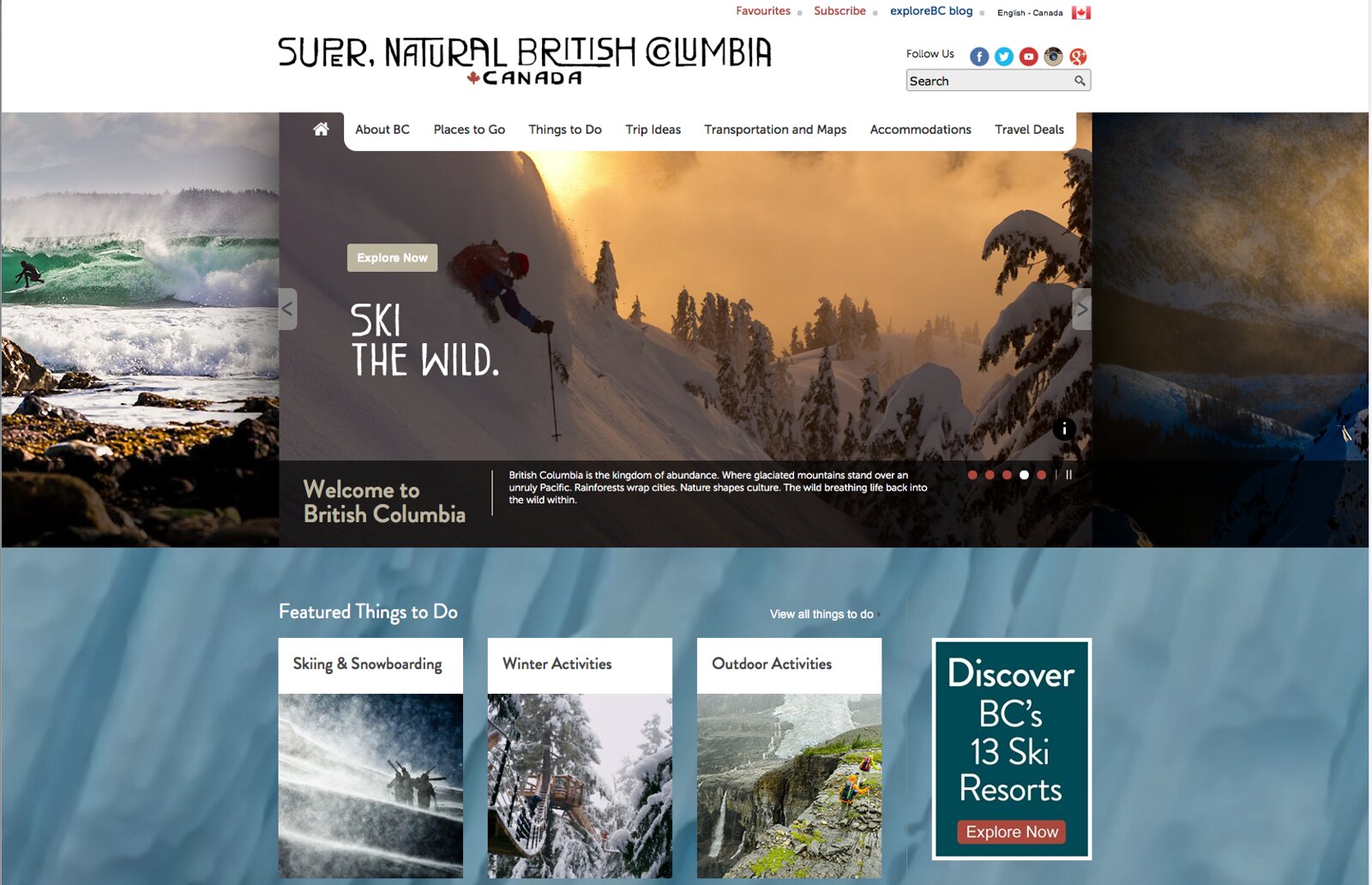
Tourism services support industry development and the delivery of guest experiences, and some of these are missing from the NAICS classification. To ensure you have a complete picture of the tourism industry in BC, this chapter will cover both the NAICS travel services activities and some additional tourism services.
First, we’ll review the components of travel services as identified under NAICS, as well as exploring popular careers within:
- Travel agencies (brick and mortar)
- Online Travel Agencies/OTA
- Tour operators
- Destination marketing organizations (DMOs)
Other Organizations
Following these definitions and descriptions, we’ll take a look at some other support functions that fall under tourism services. These include sector organizations, tourism and hospitality human resources organizations, training providers, educational institutions, government branches and ministries, economic development and city planning offices, and consultants.
Finally, we’ll look at issues and trends in travel services, both at home, and abroad.
While the application of travel services functions are structured somewhat differently around the world, there are a few core types of travel services in every destination. Essentially, travel services are those processes used by guests to book components of their trip. Let’s explore these services in more detail.
Travel Agencies
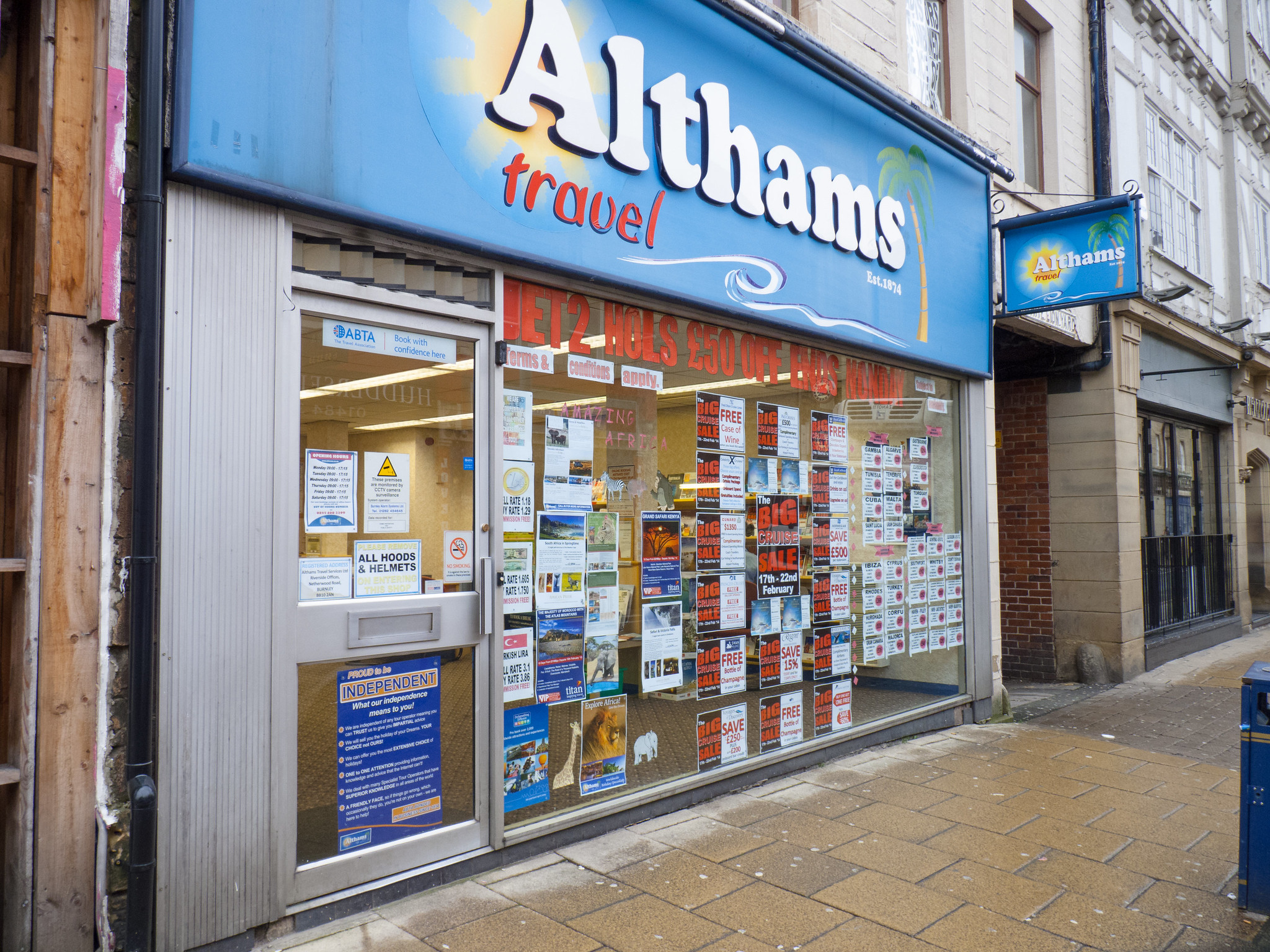
A travel agency is a business that operates as the intermediary between the travel industry (supplier) and the traveller (purchaser). Part of the role of the travel agency is to market prepackaged travel tours and holidays to potential travellers. The agency can further function as a broker between the traveller and hotels, car rentals, and tour companies (Goeldner & Ritchie, 2003). Travel agencies can be small and privately owned or part of a larger entity.
A travel agent is the direct point of contact for a traveller who is researching and intending to purchase packages and experiences through an agency. Travel agents can specialize in certain types of travel including specific destinations; outdoor adventures; and backpacking, rail, cruise, cycling, or culinary tours, to name a few. These specializations can help travellers when they require advice about their trips. Some travel agents operate at a fixed address and others offer services both online and at a bricks-and-mortar location. Travellers are then able to have face-to-face conversations with their agents and also reach them by phone or by email. To promote professionalism within the travel industry, travel counsellors can apply for a specialized diploma or certificate in travel from ACTA (ACTA, 2020a; go2HR, 2020a).
Today, travellers have the option of researching and booking everything they need online without the help of a travel agent. As technology and the internet are increasingly being used to market destinations, people can now choose to book tours with a particular agency or agent, or they can be identified as seeking Domestic Independent Travel (DIT) or Foreign Independent Travel (FIT) , by creating their own itineraries from a number of suppliers.
Online Travel Agents (OTAs)
Increasing numbers of travellers are turning to online travel agents (OTAs), companies that aggregate accommodations and transportation options and allow users to choose one or many components of their trip based on price or other incentives. Examples of OTAs include iTravel2000, Booking.com, Expedia.ca, Hotwire.com, and Kayak.com. OTAs continue to gain popularity with the travelers; in 2012, they reported online sales of almost $100 billion (Carey, Kang, & Zea, 2012) and almost triple that figure, upward of $278 billion, in 2013 ( The Economist , 2014).
In early 2015 Expedia purchased Travelocity for $280 million, merging two of the world’s largest travel websites. Expedia became the owner of Hotels.com, Hotwire, Egencia, and Travelocity brands, facing its major competition from Priceline (Alba, 2015).
Although OTAs can provide lower-cost travel options to travellers and the freedom to plan and reserve when they choose, they have posed challenges for the tourism industry and travel services infrastructure. As evidenced by the merger of Expedia and Travelocity, the majority of popular OTA sites are owned by just a few companies, causing some concern over lack of competition between brands. Additionally, many OTAs charge accommodation providers and operators a commission to be listed in their inventory system. Commission-based services, as applied by Kayak, Expedia, Hotwire, Hotels.com, and others, can have an impact on smaller operators who cannot afford to pay commissions for multiple online inventories (Carey, Kang & Zea, 2012). Being excluded from listings can decrease the marketing reach of the product to potential travellers, which is a challenge when many service providers in the tourism industry are small or medium-sized businesses with budgets to match.
While the industry and communities struggle to keep up with the changing dynamics of travel sales, travellers are adapting to this new world order. One of these adaptations is the ever-increasing use of mobile devices for travel booking. The Expedia Future of Travel Report found that 49% of travellers from the millennial generation (which includes those born between 1980 and 1999) use mobile devices to book travel (Expedia Inc., 2014), and these numbers are expected to continue to increase. Travel agencies are reacting by developing personalized features for digital travellers and mobile user platforms (ETC Digital, 2014). With the number of smartphone users expected to reach 1.75 billion in 2014 (CWT Travel Management Institute, 2014) these agencies must adapt as demand dictates.

A key feature of travel agencies’ (and to a growing extent transportation carriers) mobile services includes the ability to have up-to-date itinerary changes and information sent directly to consumers’ phones (Amadeus, 2014). By using mobile platforms that can develop customized, up-to-date travel itineraries for clients, agencies and operators are able to provide a personal touch, ideally increasing customer satisfaction rates.
Take a Closer Look: PATA — The Future of Travel is Personalisation at Scale
“The industry has changed monumentally over the past decade. The rise of meta-search websites and sharing economy services like Airbnb is giving travellers more control and choice than ever before. However, this is nothing compared to the changes that are on the horizon as technologies like mobile, AR, AI, and VR become mainstream.
One thing is certain; the pace of change is accelerating. Against this backdrop, the travel industry as a whole will need to fundamentally shift its focus to continuous innovation.” (PATA, 2019)
Despite the growth and demand for OTAs, brick and mortar travel agencies are still in demand by travellers (IBISWorld, 2019) as they have both an online presence and physical locations. The COVID-19 pandemic may see an increase in travellers relying on personal contact with brick and mortar travel agencies but at a distance through mail and phone.
Tour Operators
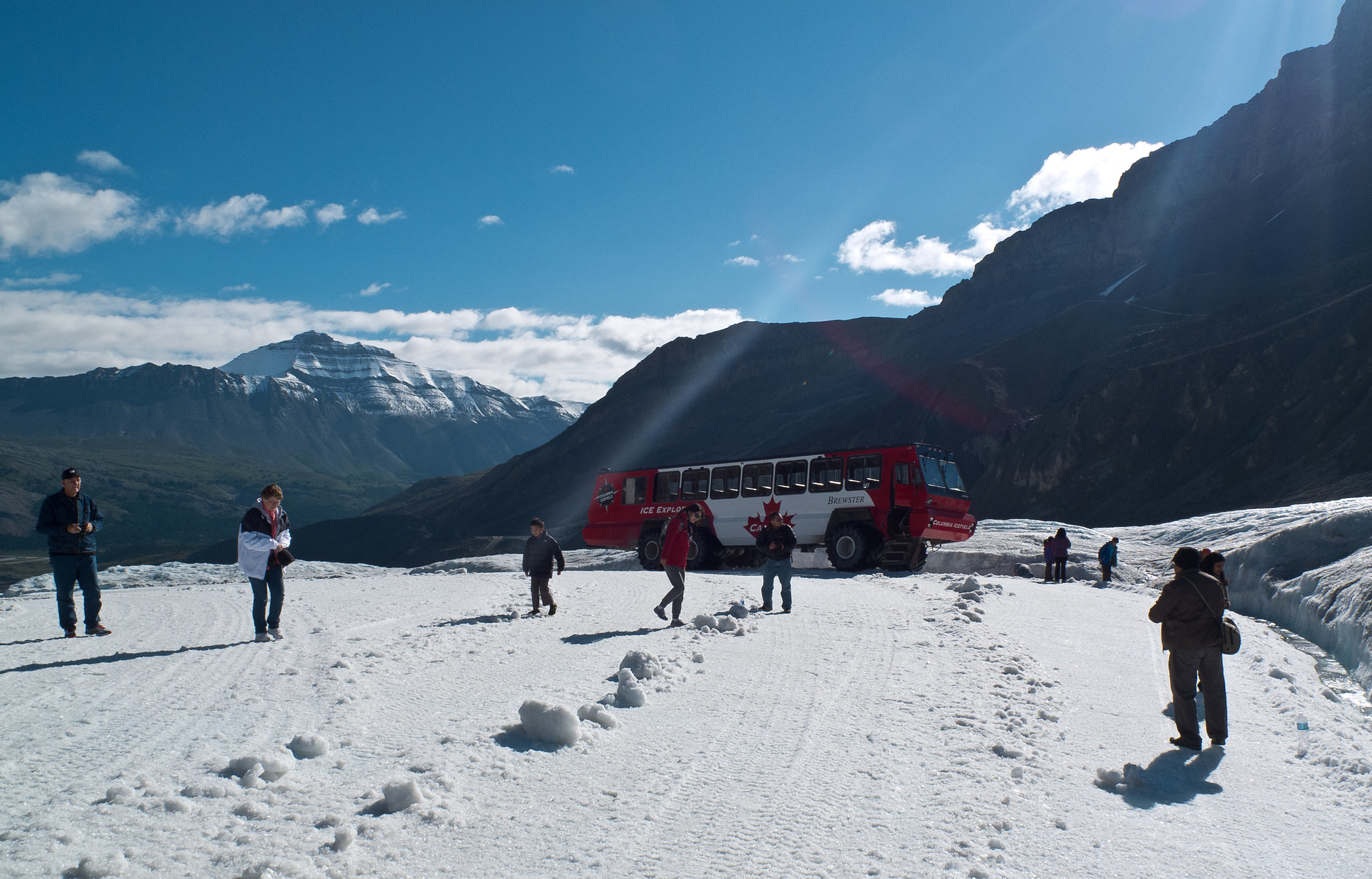
A tour operator packages all or most of the components of an offered trip and then sells them to the traveller. These packages can also be sold through retail outlets or travel agencies (CATO, 2020; Goeldner & Ritchie, 2003). Tour operators work closely with hotels, transportation providers, and attractions in order to purchase large volumes of each component and package these at a better rate than the traveller could if purchasing individually. Tour operators generally sell to the leisure market.
Inbound, Outbound, and Receptive Tour Operators
Tour operators may be inbound, outbound, or receptive:
- Inbound tour operators bring travellers into a country as a group or through individual tour packages (e.g., a package from China to visit Canada).
- Outbound tour operators work within a country to take travellers to other countries (e.g., a package from Canada to the United Kingdom).
- Receptive tour operators (RTOs) are not travel agents, and they do not operate the tours. They represent the various products of tourism suppliers to tour operators in other markets in a business-to-business (B2B) relationship. Receptive tour operators are key to selling packages to overseas markets (Destination BC, 2020) and creating awareness around possible product.
Destination Marketing Organizations
Destination marketing organizations (DMOs) include national tourism boards, state/provincial tourism offices, and community convention and visitor bureaus around the world. DMOs promote “the long-term development and marketing of a destination, focusing on convention sales, tourism marketing and service” (Destinations BC, 2020).
Spotlight On: Destinations International
Destinations International is the global trade association for official DMOs. It is made up of over 600 official DMOs in 15 countries around the world. DMAI provides its members with information, resources, research, networking opportunities, professional development, and certification programs. For more information, visit the Destinations International website.
With the proliferation of other planning and booking channels, including OTA s, today’s DMOs are shifting away from travel services functions and placing a higher priority on destination management components.
Working Together
One way tour operators, DMOs, and travel agents work together is by participating in familiarization tours (FAMs for short). These are usually hosted by the local DMO and include visits to different tour operators within a region. FAM attendees can be media, travel agents, RTO representatives, and tour operator representatives. FAMs are frequently low to no cost for the guests as the purpose is to orient them to the tour product or experience so they can promote or sell it to potential guests.
The majority of examples in this chapter so far have pertained to leisure travellers. There are, however, specialty organizations that deal specifically with business trips.
Spotlight On: Global Business Travel Association (GBTA) Canada
“GBTA Canada is the voice of the Canadian business travel industry. We believe in providing the business travel and meetings community with a global platform to serve as a resource library for their peers, to implement world-class Conferences, workshops and virtual meetings, and to foster an interactive network of innovation and support.” The GBTA state that their economic impact contributes $23.5 billion CAD in Canadian business travel (Economic Impact Study) and “$435+ billion CAD of business travel and meetings expenditures represented globally.” Visit the GBTA website .
Business Travel Planning and Reservations
Unlike leisure trips, which are generally planned and booked by end consumers using their choice of tools, business travel often involves a travel management company, or its online tools. Travel managers negotiate with suppliers and ensure that all the trip components are cost effective and comply with the policies of the organization.
Many business travel planners rely on global distribution systems (GDS) to price and plan components. GDS combine information from a group of suppliers, such as airlines. In the past, this has created a chain of information from the supplier to GDS to the travel management company. Today, however, there is a push from airlines (through the International Air Transport Association’s Resolution 787) to dissolve the GDS model and forge direct relationships with buyers (BTN Group, 2014).
Destination Management Companies
According to the Association of Destination Management Executives International (ADMEI), a destination management company (DMC) specializes in designing and implementing corporate programs, and “is a strategic partner to provide creative local experiences in event management, tours/activities, transportation, entertainment, and program logistics” (ADMEI, 2020). The packages produced by DMCs are extraordinary experiences rather than general business trips. These are typically used as employee incentives, corporate retreats, product launches, and loyalty programs. DMCs are the one point of contact for the client corporation, arranging for airfare, airport transfers, ground transportation, meals, special activities, and special touches such as branded signage, gifts, and decor (ADMEI, 2020). The end user is simply given (or awarded) the package and then liaises with the DMC to ensure particular arrangements meet his or her needs and schedule.
As you can see, travel services range from online to personal, and from leisure to business applications. Now that you have a general sense of the components of travel services, let’s look at some examples in Canada and BC.
Under NAICS, businesses and functions that assist with planning and reserving components of the visitor experience.
Other services that work to support the development of tourism and the delivery of guest experiences.
A business that provides a physical location for travel planning requirements.
An individual who helps the potential traveller with trip planning and booking services, often specializing in specific types of travel.
A trade organization established in 1977 to ensure high standards of customer service, engage in advocacy for the trade, conduct research, and facilitate travel agent training.
A service that allows the traveller to research, plan, and purchase travel without the assistance of a person, using the internet on sites such as Expedia.ca or Hotels.com.
An operator who packages suppliers together (hotel + activity) or specializes in one type of activity or product.
An operator who packages products together to bring visitors from external markets to a destination.
An operator who packages and sells travel products to people within a destination who want to travel abroad.
Someone who represents the products of tourism suppliers to tour operators in other markets in a business-to-business (B2B) relationship.
Also known as a destination management organization; includes national tourism boards, state/provincial tourism offices, and community convention and visitor bureaus.
Tours provided to overseas travel agents, travel agencies, RTOs, and others to provide information about a certain product at no or minimal cost to participants. The short form is pronounced like the start of the word "family" (not as each individual letter).
A company that creates and executes corporate travel and event packages designed for employee rewards or special retreats.
Introduction to Tourism and Hospitality in BC - 2nd Edition Copyright © 2015, 2020, 2021 by Morgan Westcott and Wendy Anderson, Eds is licensed under a Creative Commons Attribution 4.0 International License , except where otherwise noted.
Share This Book

What is Tour Cost? Components, Types of Tour Costs
- Post last modified: 19 January 2023
- Reading time: 21 mins read
- Post category: Uncategorized
What is Tour Cost?
Tour cost means the total cost incurred or attributed to a tour product or service. It is the sum total of costs incurred to create or formulate a tour package. Since tour is an assembled product, its costing involves bulk purchase.
Therefore the cost of the tour packages is determined according to the client requirement or company strategy. As the quality of the product /service and the price of that product go side by side, hence in travel trade the cost unit is a package tour because a company sells a large number of packages.
Table of Content
- 0.1 What is Tour Cost?
- 1.1 Research and Development Cost
- 1.2 Travel Cost
- 1.3 Accommodation Cost
- 1.4 Food and Beverage Cost
- 1.5 Sightseeing and Activity Cost
- 1.6 Marketing Cost
- 1.7 Administrative Cost
- 1.8 Miscellaneous Costs
- 2.1 Direct costs
- 2.2 Indirect tour costs
- 2.3 Fixed costs
The identification of cost unit will help to cost manager to separate the cost into smaller sub-divisions attributable to the tourism industry. A tour package is a combination of various tourism services/ goods like transport, accommodation and other facilities en route and at the destination.
However, in reality, it has only two basic components;
- Travel services
- Ground services.
Components of Tour Cost
The cost of a tour package includes:
Research and Development Cost
It is the cost incurred when planning a tour package. It includes the cost of the tour planner, manager and staff of the company who are involved in tour planning. The main activities in the research and planning phase are:
- Study the economic factors influencing the future development of package tours.
- Identification of likely selection of destinations.
- Make an in-depth comparison of alternative destinations.
These phases require in-depth research work and hence this requires a good amount of money. The tour planner, marketing researchers etc have to work rigorously for the tour planning activities. The main activities in the tour development are:
Destination Research
The decision to develop and formulate a new package is a multi-stage process that involves various steps. Normally, the idea for a new product comes either from the tour executive within the company due to a review of the questionnaire completed by the previous tour members or because of the political, social and economic developments in a particular area.
When a tour planner sees that a large number of clients are interested in taking a trip to particular destinations, naturally, those destinations become the nucleus of a new tour concept. Moreover, the forecasting of future development is affected by changing circumstances in the market.
Some of these circumstances are:
- Change in tourist patterns
- Transportation cost
- Accommodation and other cost
- Exchange rate prevailing
- Inflationary conditions
- Competitive environment
- Extent and support from airlines serving the routes
- Support from national / regional tourist office of the destination
- Political stability of the country
- Attribute to and state’s control over mass tourism within the country
- The relation between the host and tourist generating countries
Market Research
Since tour package is a complete tourism product, obviously, before formulating this product, market research should be done and the data to be analyzed and assessed in a systematic manner. Market research provides us the answer to the following questions.
- What is the size of tourism market?
- Who are the existing clients?
- Who will be the potential buyers?
- Who are the competitors’ – their area and strategy?
- What price will the customer accept?
- What facilities are available and required?
- What are the constraints? (License, permission, taxes, finance, restrictions, taxes etc)
Once we know the basic components of a package tour, distribution channels, market conditions, constraints etc., we can develop a marketing strategy. It also enables the smooth functioning of the tour company and also offers a clear picture of the tour programme.
The planning stage also includes the cost of the Familiarization Tour (FAM) and any other costs incurred to develop a new or old package tour. Generally, a tour planner works on several tour packages. The allocation of cost is based on two methods
Both the methods are important. Long-term cost deals with the tour planning and development and the second deals with initial tour development. So for determining research and development costs, the tour management must project this cost at first. Secondly, the company should divide the tour into a minimum of 10 or 12 tours. This figure is added to the total cost of the package sold.
Travel Cost
This cost includes the cost of travel in different modes like air, road, rail, land etc. In other words, it is the total cost incurred for travel from a point of origin to a point of destination through any mode of travel. A commercial air ticket sold on a regularly scheduled flight is a simple pricing procedure. The prices quoted include all the applicable charges.
Tour operators have to worry about airport transfers too. Pricing charter flights is little more complicated. Frequently, modes of transport are combined or used sequentially to achieve the objectives of the tour.
For example, there are fly/drive tours that use a combination of aeroplanes and rental cars. Some tours offer fly/cruise packages, wherein the travellers fly to a port of embarkation and then board a cruise ship for most of the tour.
Other commonly identified types of tours feature the name of the dominant mode of transport. For example, a rail tour uses train as the mode of transportation. Perhaps the most widely recognized form of touring is motor coach tour, which as the name implies, utilizes buses or motor coaches to move the participants from destination to destination and to visit sightseeing attractions along the way. Most motor coaches have 46 to 48 seats.
Accommodation Cost
Virtually all package tours that are longer than a single day include some type of accommodation. Accommodations range from a simple tent to luxurious hotels and resorts and as such can be tailored to fit to any tour member’s budget. Typically participants choose accommodation from different price ranges. It is the price paid to acquire a stay in any accommodation unit.
The accommodation costs depend on the negotiation between the hotel management and the tour manager/ planner, and other elements of hotel products like, food, beverage and amenities etc. Once the cost is finalized, it is added to the total cost of the package tours. Hotels, motels resorts, tribal huts, homestays etc provide accommodation facilities for the guests and tariffs vary considerably depending upon the type, standards, services, facilities, location etc.
Transfer cost Transfers are any mode of transport that shuttles participants from their point of arrival, frequently an airport, to their first accommodation, typically a hotel. It is incurred for transferring the client from the airport to the hotel or vice versa.
The cost is according to the contract with transport companies on mileage or duration basis. Virtually any type of transfer is possible, such as a shuttle bus between a railway station and a cruise ship. The transfer is an important component in the tour cost when the destinations are distant from one another.
Food and Beverage Cost
Lodging meal plans are also important among the tour cost components. Wide ranges of meal plans are available on package tours. The level and type of plan is one of the factors that significantly affect the cost of a tour.
- With American plan, tour participants receive all three daily meals as part of their tour package. The American Plan (AP) is common in cruise packages that visit more remote or isolated destinations.
- Tour participants, under the Modified American Pan (MAP), receive breakfast and one other main meal, usually dinner.
- Dinner can be either the mid-day meal or the evening meal depending on the country and tour. The room plus a continental breakfast is called a Continental Plan (CP). With this type of plan, tour participants receive a daily light breakfast such as bread, jams, fruits, cereal, coffee and tea. Continental plans vary from country to country, however, in certain countries; a more extensive menu is available and may include meats, cheeses and even boiled eggs.
- European plan does not include any meals and present a significant saving to the tour operator. Under this type of plan, tour participants are required to pay for all of their own meals. Lodging properties that use meal plan pricing quote prices per person, not per room.
- In Bermuda Plan (BP), tour participants receive a full cooked breakfast, but no other meals are provided.
It is important to note that one way of saving money is by reducing or eliminating meals that are included as part of the tour. The type of meal is also an important consideration in tour cost. For example, a tour operator who offers five lunches and five dinners as part of the package is offering more than an operator who offers ten breakfasts.
Similarly, a tour operator who allows participants’ unlimited menu choices at a destination is more than one who restricts the participants to a selection of three main dishes or a set menu. It is important to pay attention to theses details when costing the food and beverage component.
Sightseeing and Activity Cost
This constitutes a major portion of the tour cost which makes the clients satisfactory or unsatisfactory. Usually, this cost is calculated per person. Generally, a package tour includes sightseeing as an important component.
For Example, a 2 Nights and 3 days package to Sri Lanka will definitely include a half-day or full day sightseeing as a compulsory part of the package. This component takes a major fraction of the package cost and again varies with the mode of transportation used. The destination vendors offer these activities less expensively to a group.
Marketing Cost
In this world of globalization, no organization can withstand without marketing. Proper marketing should be done for the success of any product. Tourism products are not different from this. Package tours and ancillary products have to be marketed properly, which constitutes a major fraction of the company’s budget.
The marketing budget of the company should be allocated in such a way that it reaches the audience more deeply and effectively. Promotional activities include advertisement, sales promotion activities, public relation, telemarketing, direct marketing etc. All marketing effort should be based on AIDA principle, i.e., it should create attraction, generate interest, arouse desire and initiate action. For this, cost should not be a constraint.
Administrative Cost
The administrative department plays a vital role in a tour company, which handles all the background paperwork and office functions including:
- Looking after telephones, faxes, telexes, personal; computers etc.
- Handling the post
- Dispatching documents to clients.
- Sending paper print outs (tickets, rooming lists, etc) to the concerned departments.
- Looking after office maintenance, cleaning etc.
- Staffing the reception and switchboard.
Handling of the above administrative functions requires a good fraction of the cost. Administrative cost is the expenditure incurred by the tour company in formulating the policy and strategy for directing the organization and controlling the operations.
Administrative costs and incidentals include things like brochure printing, postage, charge for telephone charges, baggage, nametags, flight bags, etc. In the era of competition and revolutionary developments in information technology, potential clients have to be contacted and served. So mobile phones to the executives, Internet, events and cultural galas for the industry people like travel agents, travel executives, travel writers etc are indispensable.
These costs are incurred in the general and financial management of travel business such as office expenses, salary to staff, audit, insurance/legal expenses etc are also important. These are fixed costs and the allocation of these expenses to a particular tour or service may be too much as there are many tours/ services that a company can offer at a particular time. Usually, it occupies 15-20 % of the cost of sale.
Miscellaneous Costs
The miscellaneous costs vary from organization to organization. These costs include portage at airports, tips at airports, hotels etc, entrance fees, insurance premeuims, literature and other materials, and gifts given to tour members at the beginning and end of a tour, welcome drink, welcoming event/ reception etc. These costs are determined by adding up the per-person cost of each item.
However, the percentage of each cost to total tour cost is different for a new tour company as compared to an old tour company. In the case of a new tour/ travel company, that has not developed its reputation; the miscellaneous expenses figure should be between 10 to 15 per cent of the total tour cost. In case of an established tour company, this figure should be one to two per cent of the total cost.
Types of Tour Costs
The tour cost can be classified into two categories depending upon how it affects total cost structure of a tour.
Direct costs
Direct costs are those, which are incurred and conveniently identified with a particular package tour such as accommodation costs, travel costs, food and beverage costs, sightseeing costs etc. These costs are readily traceable to a specific tour.
For example, the cost of a guest’s food and accommodation will directly reflect in his tour cost. The price differs when he undertakes his travel by car, flight, motor coach etc. Suppose a guest opts for Modified American Plan during his stay in a five-star hotel, the total package cost will be less compared to the package cost of a guest who opts for American plan.
Indirect tour costs
There are many costs involved in making and marketing tours that are not so readily identifiable as the direct tours costs. Indirect tour costs are those costs which are incurred for the benefit of a number of tours that are offered by a travel company during a year or a particular period but cannot be conveniently identified with particular tour costs such as marketing costs, tour planner’s costs, financial and legal costs, administrative expenses, FAM tour costs, medical expenses, insurances and so forth.
The total tour package will be based on a fraction of all these indirect costs but are not able to easily identify with a particular tour.
Fixed costs
Fixed costs are those, which are incurred even when one is selling or not selling any tour package. Maintaining a motor coach would add to fixed cost since some expenses are incurred whether or not one or all seats are occupied.
When a tourist/ client or a group of people go on a tour, one has to incur some expenses such as FAM tour, cost of a tour bus, research and development expenditures, marketing expenses, tour manager’s and tour planner’s salary etc. These are all included in fixed costs. These costs are constant in total amount, but fluctuate per person/ per package as the level changes.
Fixed cost is also known as period cost because it is dependent on time rather than on output. The management of a tour company can control these costs. Fixed costs are those costs that remain stable regardless of how many tours are sold or how much revenue enters the business.
Rent, interest on mortgage, insurance and costs associated with minimal staffing levels (including the owner’s draw or salary) are the primarily fixed costs of a tour operator. If a tour operator is unable to pay fixed costs, the door must close.
Variable Costs
In contrast to fixed tour costs, some tour costs tend to vary in direct proportion to the level of sales or number of tour participants. Costs, which are incurred only if a passenger actually uses the service, are variable costs. Tour variable costs are those, which vary with the number of tourists participating in the tour. Examples of tour variable costs include admissions to attractions, hotel rooms, and meals. For example, food and beverage costs, the cost of the gifts, brochures, tourist taxes, entrance fees, room costs etc. play an important role in making a tour costly or cheap. The cost is also known as product cost because it is based on product rather than on time.
Air transport would be a variable cost. This service would not be paid for unless the seat was occupied, except when certain fares are used which cannot be refunded to the passenger, e.g., for group travel when the minimum group size is specified.
Or when a tourist /client or a group of people go on a tour, one has to bear some expenses such as ‘FAM tour, cost of a tour bus, research and development expenditure, marketing expenses, tour manager’s and tour planner’s salary etc. These are all included in fixed costs. These fixed tour costs are constant in total amount but fluctuate per person /per package as the level changes.
Please Share This Share this content
- Opens in a new window X
- Opens in a new window Facebook
- Opens in a new window Pinterest
- Opens in a new window LinkedIn
- Opens in a new window Reddit
- Opens in a new window WhatsApp
You Might Also Like
Golden chariot (mysore – goa), pacific asia travel association (pata), cereals and pulses, tiger reserves in india, customer: focus, cycle, service, 5 dimensions, organizational alignment: as systems, framework, leave a reply cancel reply.
Save my name, email, and website in this browser for the next time I comment.
Tour Operators
Tour operator is an organization, firm, or company who buys individual travel components, separately from their suppliers and combines them into a package tour, which is sold with their own price tag to the public directly or through middlemen, is called a Tour Operator .
More precise tour operators are primarily responsible for delivering and performing the services specified in a given package tour. They can provide these services themselves as some have their own cars and coaches, hotels, and other travel-related services or can obtain these from the other suppliers. That is why they are called manufacturers of tourism products .
Tour operators are sometimes called wholesalers but this is partially true because a wholesaler buys goods and services in bulk at his own account to prepare a tour package and then retails it through the travel agencies or directly to clients. However, a tour operator who has his own one or more tourists products components, (SOTC, TCI, Thomas Cook, Indo Asia KUONI formulates a new tourist product for example ‘ inclusive tours .’
Tour operators generally offer a variety of package tours to cater to the needs of different kinds of travelers.
Definitions of Tour Operator
Poyther (1993) defines, “tour operator is one who has the responsibility of putting the tour ingredients together, marketing it, making reservations and handling actual operation.”
Holloway (1992) stated that tour operations undertake a distinct function in the tourism industry, they purchase separate elements of tourism products/services and combine them into a package tour which they sell directly or indirectly to the tourists.
Today, tour operators have become highly competitive. They endeavor to achieve a high volume of turnover, and maximum International and domestic market share by effectively operating. Moreover, the success of many developed and developing nations as tourists destinations depend heavily on a tour operator’s ability to attract tourists, development and promotion of tourism plant, diversification of tourism product and their social responsibilities to develop a remote and backward area.
Types of Tour Operators
Tour operators are basically categorized into four types . These are categories on the basis of their nature of the business and its operations.
Inbound Tour Operators
Outbound tour operators, domestic tour operators.
- Ground Operators
These are also known as incoming tour operators . Technically, the operators who receive guests, clients/tourists, and handle arrangements in the host country are c alled inbound tour operators . For example, a group of American Tourists is coming through TCI Ltd. to India and the company makes arrangements and handles the group in India then TCI is called an inbound tour operator.
Incidentally, the inbound traffic to the country for the last two decades has been decreasing. Essentially the tour operators need to adopt innovative marketing strategies and should introduce a special interest tour to cater the special needs of Japanese, Americans, French and British people.
Tour operator who promote tours for foreign destinations, maybe business tour or leisure tour is called outbound tour operators . For example a group of American tourists going to a trip of India and Thomas Cook handle arrangement in America like as ticket reservation, hotel booking etc. then Thomas Cook is called Outbound Tour operators in the context of America.
Domestic tour operators are those who assemble, combine tourist components into inclusive tours and sell it to the domestic travelers. In general, these tour operators provide travel services within the tourist’s native country.
The domestic tour operators operate within the boundary of the home country and offer package tour to the travelers viz. Domestic inclusive tours or independent tours.
Ground Operators/Destination Management Companies
These are commonly known as handling agencies and their main function is to organize tour arrangements for incoming tourists on the behalf of overseas operators. Let us take the case of India as a destination that – has a varied culture.
When a tour operator himself promotes beach holidays, wildlife holidays, adventure tours, heritage tours at the different places, the difficulty arises. It is the ground operator then who by handling the incoming travelers in the same season but at different places ensures that the entire operation is according to the package tours or agreements.
Sometime when a handling agency is at a prominent tourist place i.e., Delhi and it has to make arrangements to Goa, then it contracts (If it has no office of its own) with a local operator (known as excursion agent) to handle the arrangement on his behalf.
Why Ground Operators?
Obviously, the tour operation companies do not have close contact with suppliers, governments, destinations and so on. It leaves no choice with the companies but to appoint handling agencies at the destinations. The main reasons are:
- Introduction of new products or plant to promote an exotic destination.
- Lack of Government regulations.
- Lack of personal contract.
- Language problem.
- The company cannot establish its own branch.
Recognizing the very fact that the reputation, performance, and profitability of tour company in its own market largely depends on the efficiency and effectiveness of ground operators, it has because necessary for the company to consider various factors before the selection of a handling agency, they are:
- Size of business
- Professional staff
- Length of business
- Area of operation/Product line
- Market share
Functions of Ground Tour Operators
Over the years of functions and activities of the destination, companies have changed drastically to cope with the changing environment of the tourism industry. In fact, today’s destination companies have become more professional and are bound to provide personalized travel services to the tourists. The following functions are performed by ground tours operators:
- Land arrangement
- Contract and Negotiate with other vendors
- Handling of Arrival and departure procedure
- Planning and organizing local package tour
- Escorting the tourists
- Providing market information
- Costing and pricing package tour
Practically, if we see the working of the travel agencies and tour operators in the industry we find that most of the organizations are performing different types of activities like the retail travel agency , wholesale travel agency, and tour operators.
The travel agency business is no longer an amateurism. Over the last two decades, the pattern and structure of travel agencies have changed to meet tough challenges in the international market. Today, small-scale agencies are finding the travel industry increasingly complex.
Thus, the small and medium scale travel agencies are disappearing or merging or falling instead of rising. On the other hand, a new concept has also emerged i.e. tour operation business . The tour operation business is new but a maturing business at the global level.
Functions of Tour Operator
A tour operator is an organization, firm, or person who is responsible for the actual arrangement of transport and accommodation facilities on any tour or vacations. They are also responsible for operating and providing vacation through contracting, booking, and packaging together of the various components of the tour such as hotel, transportation, meals, guides, optional tours, and sometimes flights.
A tour operator is like a service provider, providing the most convenient option for tourists to stay, visit, as well as leave from the city. A tour operator owns a high volume of travel services across carriers, services, and accommodation. Some most important functions of the tour operators are following as:
Planning a Tour
The most important functions of the tour operators are planning a tour. Tour operators plan a tour and make tour itinerary which contains the identification of the origin, destination and all the stopping point in a traveler’s tours. A prospective tour operator also gives advice to intending tourists in various types of tour programmes, which they may choose for their leisure or commercial travel.
Making Tour Package
Tour operator buys individual travel components, separately from there suppliers and combines them into a package tour. Tour operators make tour package by assembling various travel components into a final product that is called tour package which is sold to tourist with own price tag. Making tour packages is also an important function of Tour Operator.
Arranging a Tour
Tour operators make tour package and also arrange a tour according to tourist demands. Tour operators arrange the tour package and various tourists activities to provide the best experience to tourists/traveler.
Travel Information
Whatever the size of tour operators, it has provided necessary travel information to the tourists. This task is utterly difficult and very complicated. A tour operator must give up-to-date, accurate and timely information regarding destinations, modes of travel, accommodation, sightseeing, immigration, health and security rules about various permits required to travel in a particular area etc.
Reservation
It is a very important function of all type tour operators and travel agencies. Tour operator makes all the reservation by making linkages with accommodation sector, transport sector and other entertainment organizations to reserve rooms, and seats in cultural programmes and transportation.
Travel Management
Tour operators manage tour from beginning to the end of the tour. A tour operator has the responsibility to look after the finer details of a vacation or tour such as hotel, accommodation, meals, conveyance etc. Tour operators provide travel guide, escorting services and arrange all travel related needs and wants.
Evaluate the Option Available
Tour operators evaluate all available options to provide a unique or unforgettable travel experience to tourists during their journey. Tour operators evaluate the various options available for a tour package and provide best of them to tourists.
Tour Operators makes tour packages and promote them into various tourists markets at domestic as well international level. Tour operators promote a travel destination to attract a large group of tourists at domestic as well as international level. In the promotion of tourist destination, tour operators play a key role. Travel agencies or tour operators are called as image builder of a country.
Sales and Marketing
Tour operators do sales and marketing of tourist products. Tour operators buy individual travel components, separately and combine them into a tour package, which is sold with their own price tag to the public directly. Tour operators do marketing of tourist destinations and tourism product to attracts the attention of the tourists/travelers.
Taking Care of Glitch
Tours operators are also called handling agencies which handles tour package and take care of all the glitches and problems arises during a tour package. Tour operators fix the glitches and provide the best available alternative to tourists during their journey.
Importance of Tour Operators
Tours operators play a key role in the tourism sector. Tour operators create tourist products, promote them a finally sold them to tourists.
Tour operators provide the best and competitive price to the tourist. Tour operators negotiate with suppliers of tourism products such as hotels, airlines and provide the best possible price to the tourist. Tour operators buy tourist products in bulk and get huge discounts from suppliers. So that they provide tourist products at a cheap price.
Tour operators organized a tour in the best way. They personalize and make sure each and every component of the tour is well-taken care. Tour operators provide the best travel experience during a tour. Tour operators save tourists time and money.
Tour operators provide immediate support systems at the host country as well as a foreign land. When tourists travel to a foreign land and things get uncertain, maybe its a health or loss of documents and need to return back or change of travel plan. A qualified tour operator takes care of all these unseen events with efficiency.
Tour operator caters to the needs of tourists on the based on their taste of travel. Tour operator provides all the best available option according to tourist needs and demands
Difference between Travel Agent and Tour Operator
There is a lot of confusion about the difference between tour operators and travel agents what exactly makes them different. The main difference between a Travel agent and Tour operator are following as:
- A travel agent is a person who has full knowledge of tourist product – destinations, modes of travel, climate, accommodation, and other areas of the service sector. He acts on the behalf of the product providers/principals and in return get a commission.
- Tour operator is an organization, firm, or company that buys individual travel components, separately from their suppliers and combines them into a package tour, which is sold with their own price tag to the public directly or through middlemen.
- Tour operators are like wholesalers and travel agents are the retailers.
- A tour operator makes the package holidays up and the travel agents sell them on.
- Tour operator taking up the bulk of the responsibilities and his fee is obviously much greater than a travel agent.
- A tour operator has the responsibility to look after the finer details of a vacation or tour such as hotel, accommodation, meals, conveyance, etc.
The wholesale travel agencies may offer or operate the package tours or may specialize in developing tours for inbound as well as outbound travelers. They are often referred to as tour operators, but there is a difference between Wholesale Travel Agencies and Tour operators .

IMAGES
VIDEO
COMMENTS
Obviously, the answer depends on the intended market. Some tours offer a minimum of elements; others are all-inclusive. Let's take a look at some options: Transportation. Most tours include transportation as part of the package. A fly/drive package combines air transportation and a car rental. An air/sea or fly/cruise combines air and ship ...
Transportation: Transportation is another essential component of a tour package. It can include flights, trains, buses, and even private cars or vans. The mode of transportation provided will depend on the tour package you select. Meals: Most tour packages include breakfast only to all-inclusive dining. The number and type of meals provided ...
Wide-variety of the tour package. Provide bulk business to organizers. Tourism. Tour Package is a pre-arrangement, prepaid trip that combines two or more travel components like airfare, airport transfer, accommodation, and other services. Practically, to define the tour package concept is complex one rather understand.
Travel Agents: Tap into their network and offer your packages to a wider audience. Online Travel Agents (OTAs): Increase your digital footprint and customer reach. Local Businesses: Collaborate for cross-promotion; think hotels offering your tour brochures in their lobbies. Wholesalers: They can package your tours with other services for a ...
Components of a Package Tour. A typical package tour includes several key components that are carefully curated to provide travelers with a seamless and enjoyable vacation experience. These components may vary depending on the destination, duration, and theme of the tour, but the following are some common elements found in most package tours: ...
A trip builder module simplifies the process, giving you more time to invest in growing your travel business. Learn how to build a high-value tour package with TripMatrix Software in 5 easy steps. 1. Identify the Customer's Needs. The first and most crucial step is to identify the customer's needs. If you get this right at the beginning ...
Tour Package Example. As with this example, when people think of tour packages, they often think of packages that include services from multiple vendors. Tour packages can, however, consist of offerings from a single tour provider. Rezgo's tour packaging system is designed to help you create and promote travel packages of your own tour ...
A tour operator assembles various trip components into a single package. It comes in two varieties: An independent tour, which usually consists of transportation, ... I've found tour packages online where, even if you removed one component, you would still save more money than buying the vacation a la carte. Under those scenarios, you could ...
Remember to include special interest groups and individuals in your marketing - for example, sports, festivals, and arts. 5. Complementary Product Packaging. Partnering with other tour operators who offer complementary products is a smart way to reduce your promotion costs while making your package more appealing.
Welcome to the world of tour package costing - a skill that every tour professional must master to design appeal ... Diverse Components, One Coherent Whole: Every journey is unique, and so are ...
A package tour refers to a pre-arranged travel itinerary or vacation package that combines various travel components into a single purchase. These components typically include transportation, accommodation, activities, meals, and sometimes additional services, all bundled together and sold as a complete package by a tour operator or travel agency.
A package tour operator is a company that specializes in assembling complete travel packages, often known as vacation packages. These packages typically include various elements like hotel bookings, transportation, and other services. ... A standard tour package typically includes all major components of an entire trip to a particular ...
The ideal tour package includes all the sightseeing sites in the itinerary and covers all the major and popular sights of the city you are traveling to. 6. Inter and Intracity transport bookings. There is no need to get worried about how to travel within the city and to the connecting city.
1. Research similar tours. When it comes to starting a tour business from scratch, you'll want to see what else is in your industry and geographic area. Base your tour package ideas on the interests of your target market and what you think will sell well given your area of expertise, competition and location.
Tour Operators Figure 7.4 A group tours the Columbia ice field in Alberta. A tour operator packages all or most of the components of an offered trip and then sells them to the traveller. These packages can also be sold through retail outlets or travel agencies (CATO, 2020; Goeldner & Ritchie, 2003).
TOURISM MODULE 6A Itinerary Planning and Tour Packaging 26 Travel and Tour Operation Bussiness Notes z prepare Tour Brochure Designing; and z prepare about Tour Voucher, Docketing and Programming of tours. 22.1 MEANING AND TYPES OF ITINERARY 22.1.1 Meaning of Itinerary An itinerary is a plan of a journey showing the route and the places that the
Tour Package Package holidays, popularly known as a tour package or simply the word 'tour' in the travel and ... When we say tour package, it means a pre-arrangement, prepaid trip that combines two or more travel components like airfare, airport transfer, accommodation, and other services. Practically, to define the tour package concept is ...
Package tour has become a well-established business format in providing multiple travel solutions and profits. Tour packages are having many common factors t...
It is the sum total of costs incurred to create or formulate a tour package. Since tour is an assembled product, its costing involves bulk purchase. Therefore the cost of the tour packages is determined according to the client requirement or company strategy. As the quality of the product /service and the price of that product go side by side ...
Tour operator is an organization, firm, or company who buys individual travel components, separately from their suppliers and combines them into a package tour, which is sold with their own price tag to the public directly or through middlemen, is called a Tour Operator. More precise tour operators are primarily responsible for delivering and ...
A package tour, package vacation, or package holiday comprises transport and accommodation advertised and sold together by a vendor known as a tour operator.Other services may be provided such as a rental car, activities or outings during the holiday.Transport can be via automobile, buses, charter airline, and may also include travel between areas as part of the holiday.
Type of rate availed by the public. Published Rate. Type of rate that is often seen on brochures, sites, etc. (1) Plans and develops tour packages that meet the needs of the various markets. (2) Assembles the various travel components as an integral part or component of a single tour package.